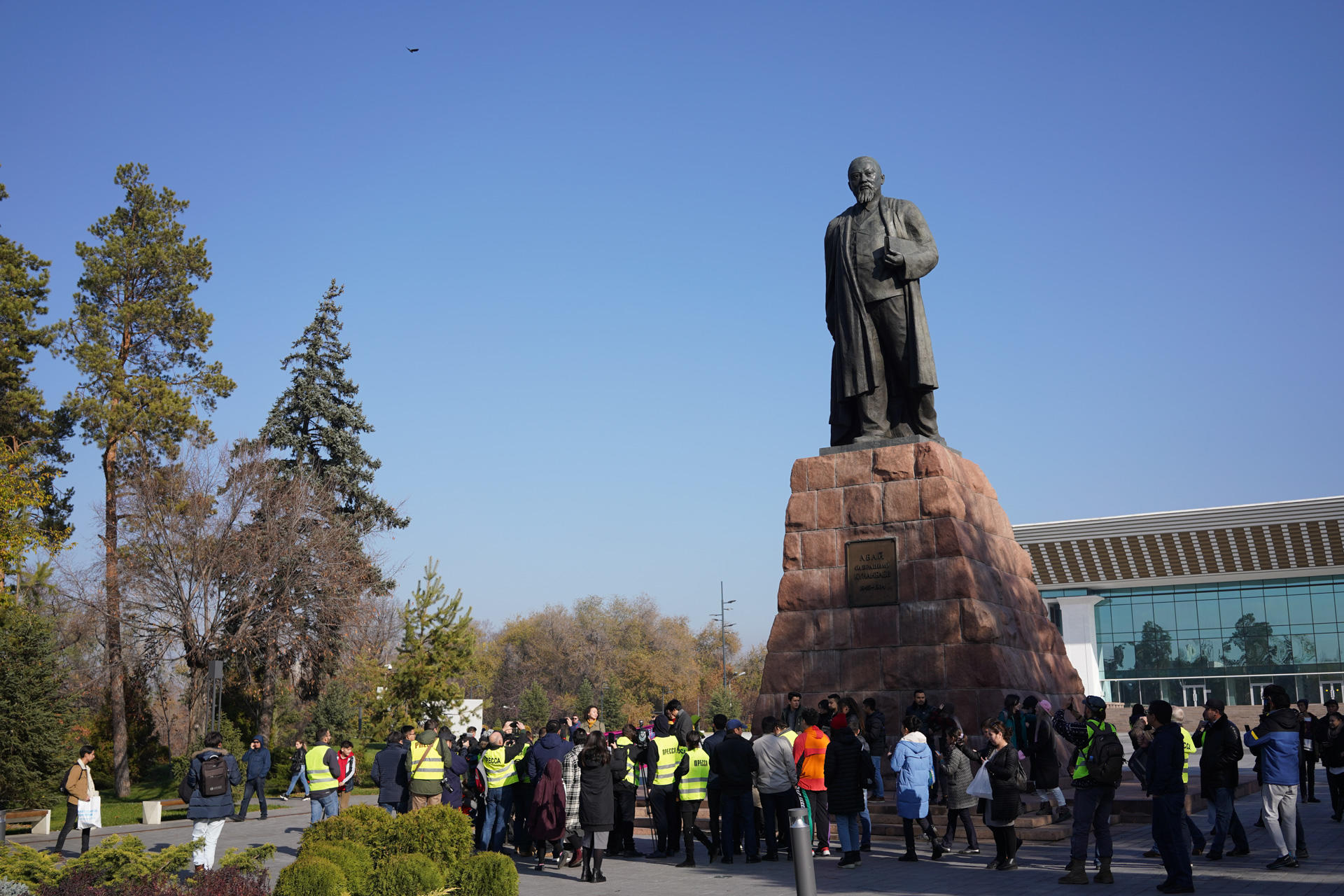In Almaty, on November 9, 2019 at 14:00, the activist group Oyan, Qazaqstan organized a rally on the square near the monument to Abay Kunanbayev. Dozens of activists took part in the rally. Many journalists were also present.
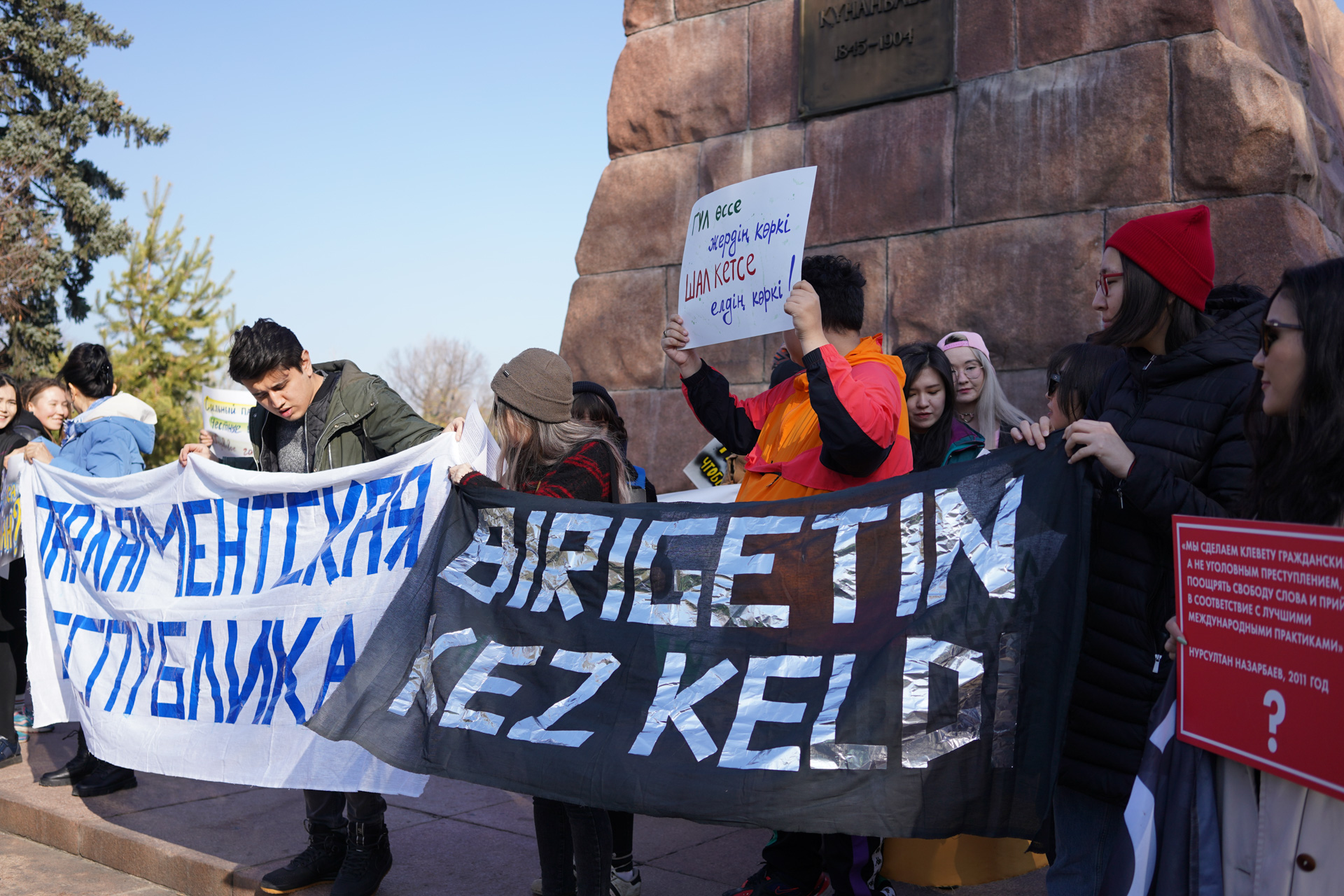
At the rally activists that had been previously detained were recognized: Aigul Nurbulatova, Aidana Aidarkhan, Roman Zakharov, Temujin Duysenov and others. Among those present was representative of the democratic opposition Galym Ageleuov, journalist Zhanbolat Mamay and civil activist Alnur Ilyashev. Ageleuov made a speech in which he called for the consolidation of all democratic, opposition and alternative forces in Kazakhstan.
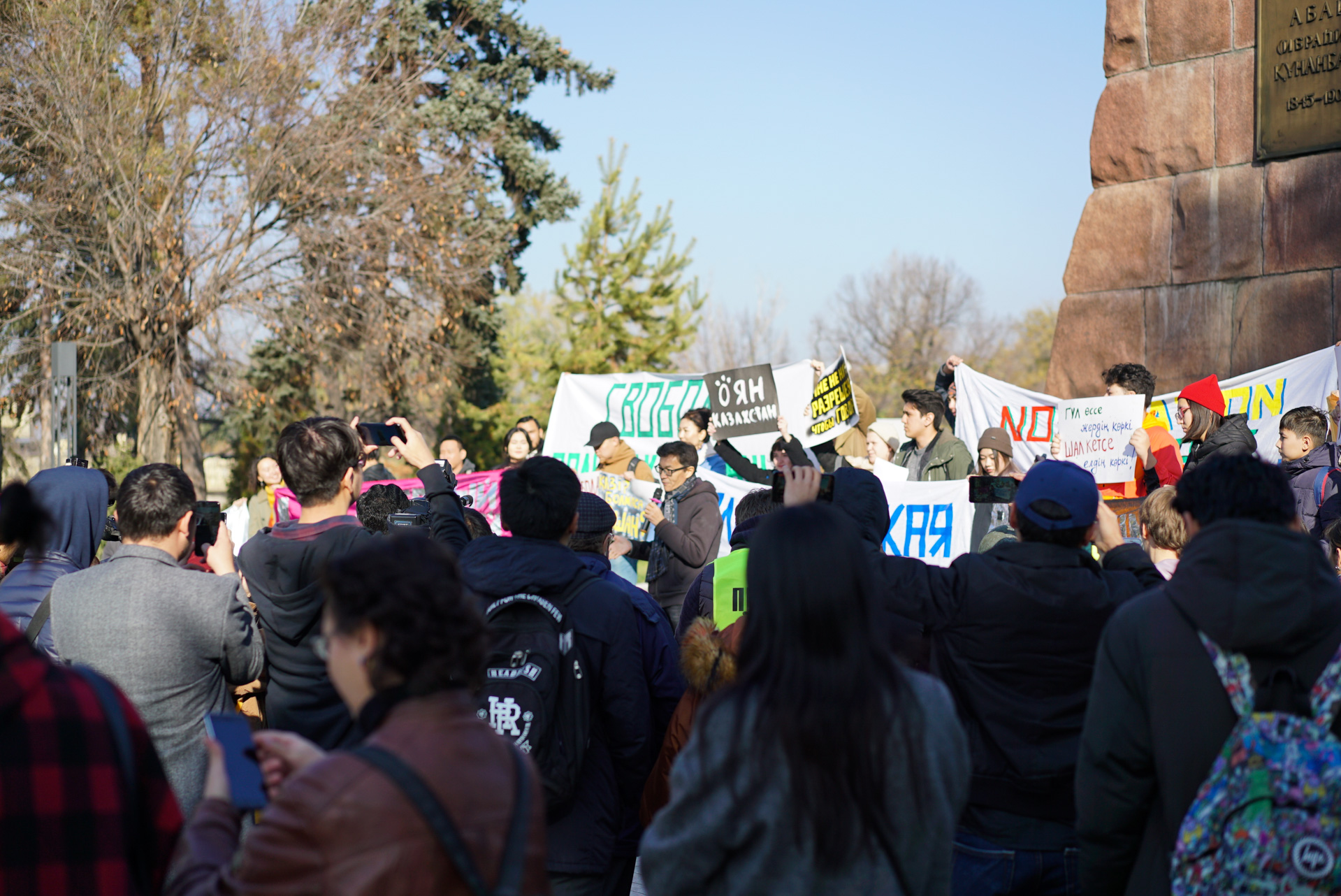
Among those present was Asya Tulesova, an environmental activist and one of the creators of the action “You Can’t Run from the Truth”.
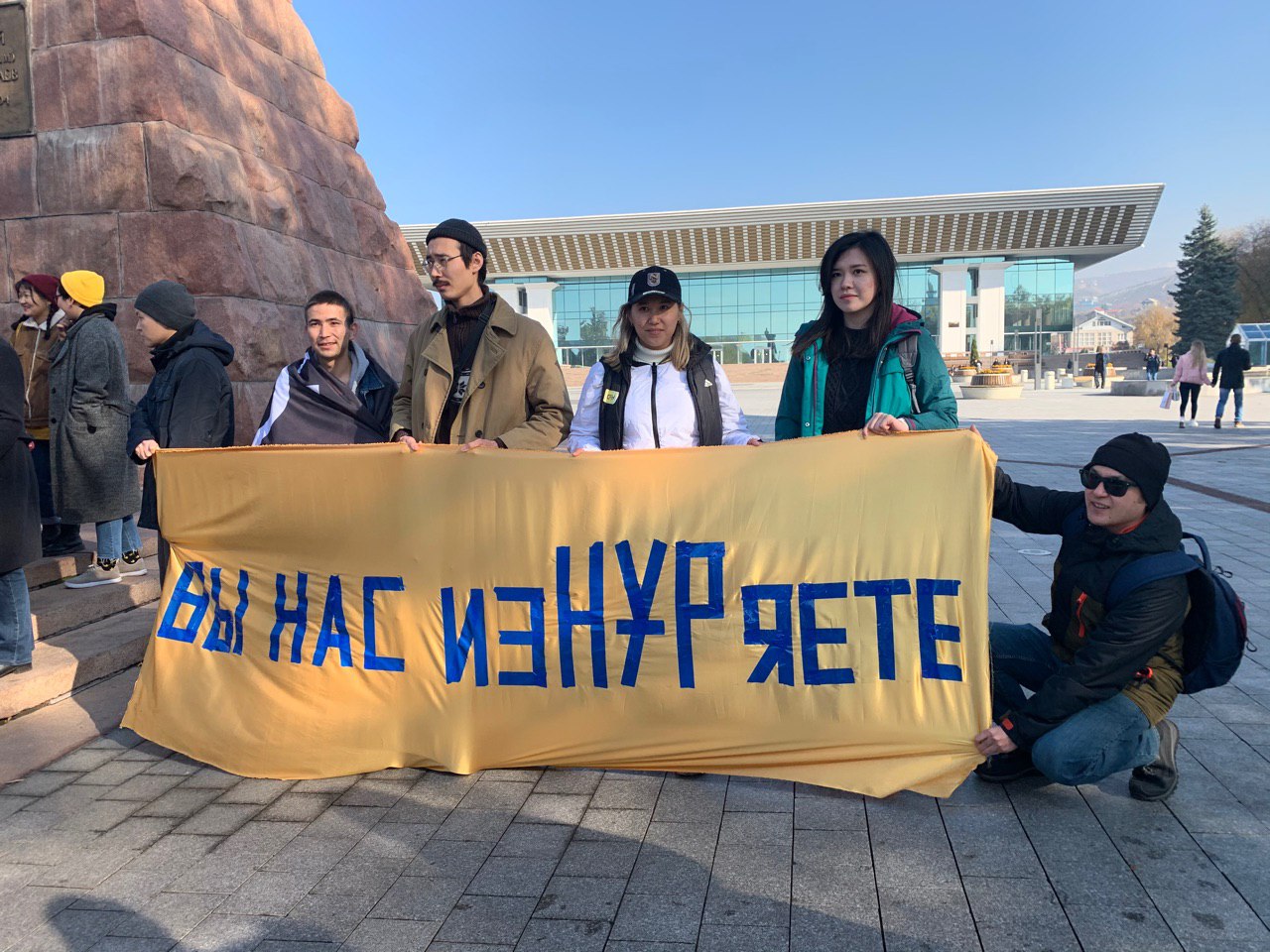
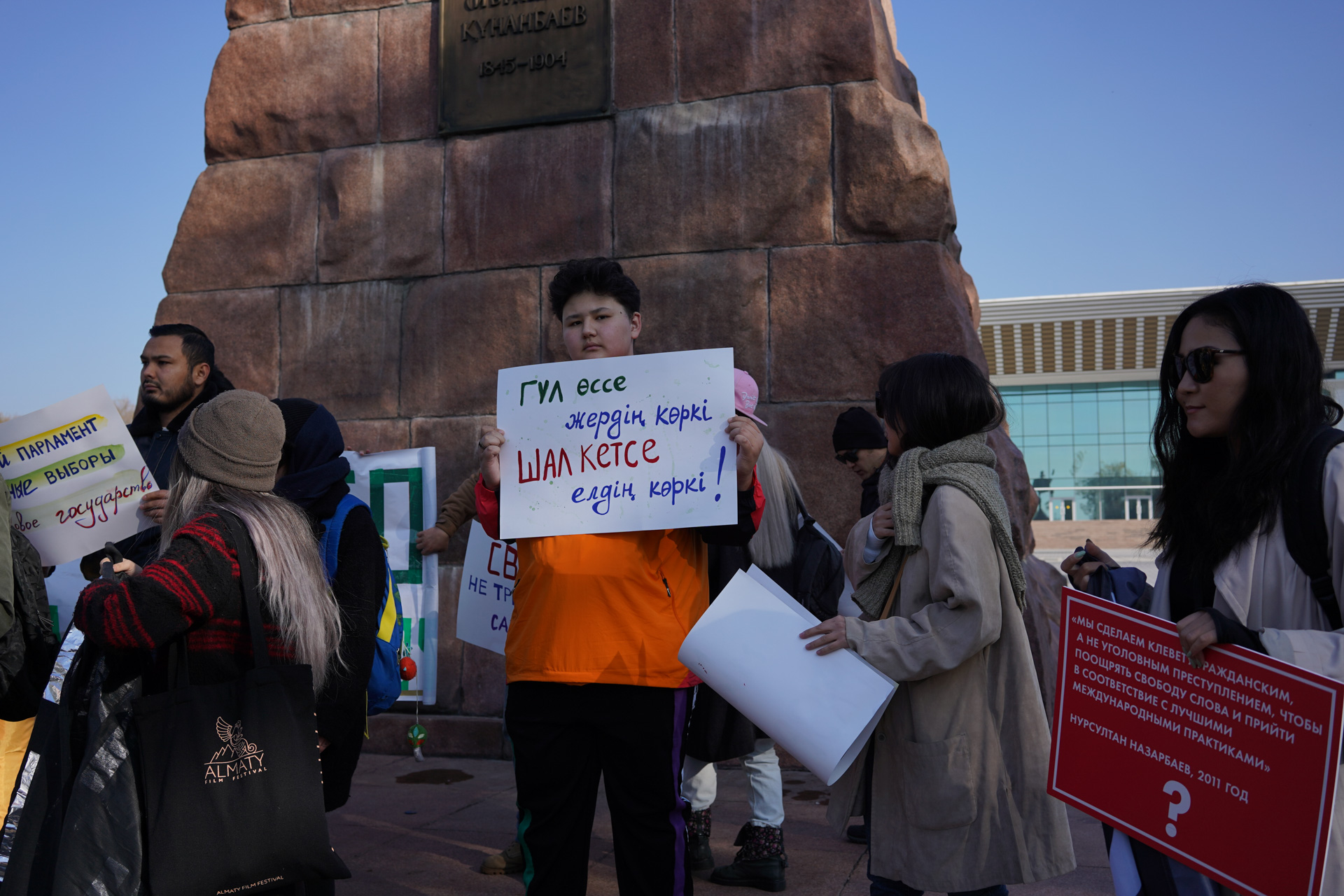
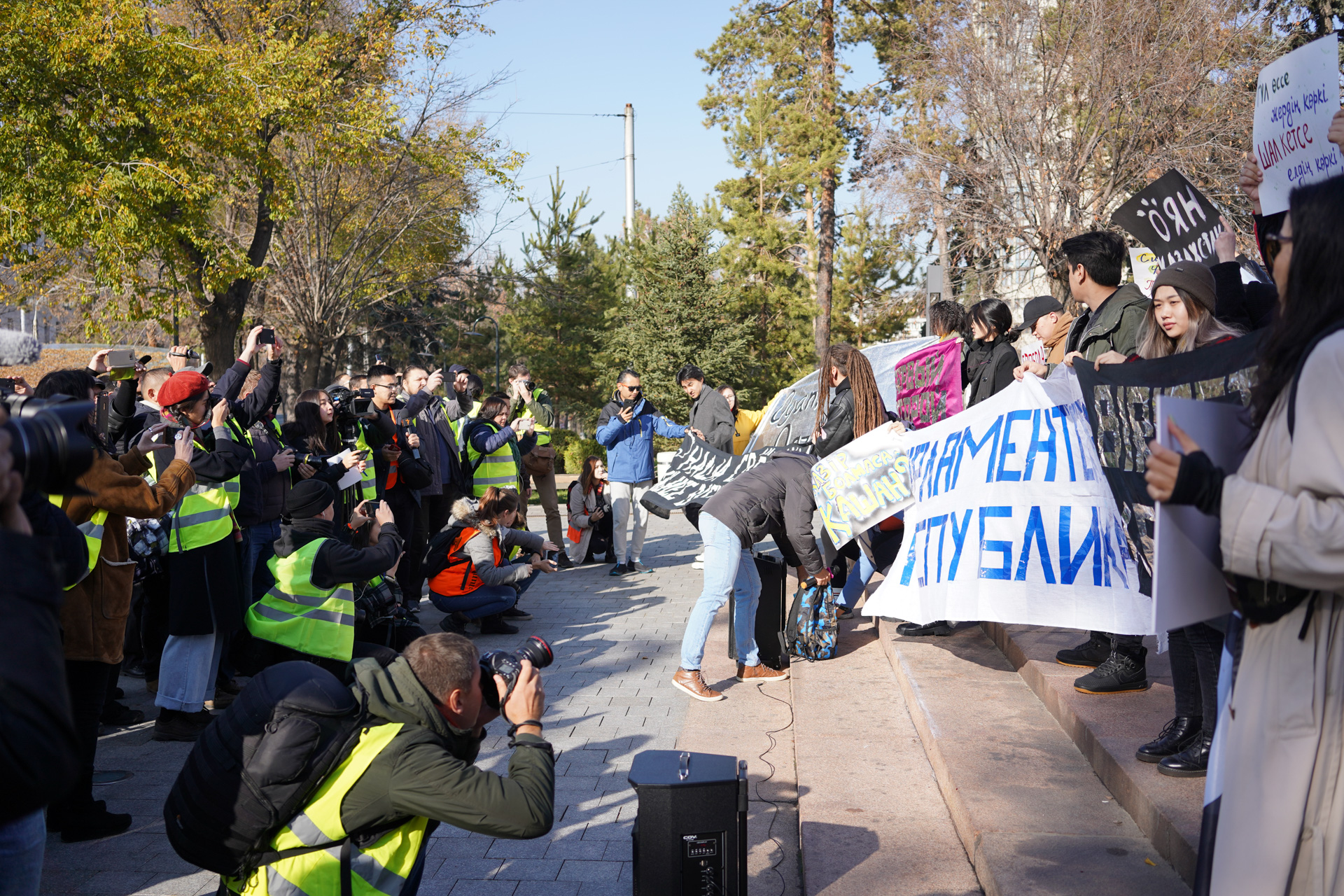
People in medical masks who were allegedly either thugs for hire or police operatives were also in the crowd.
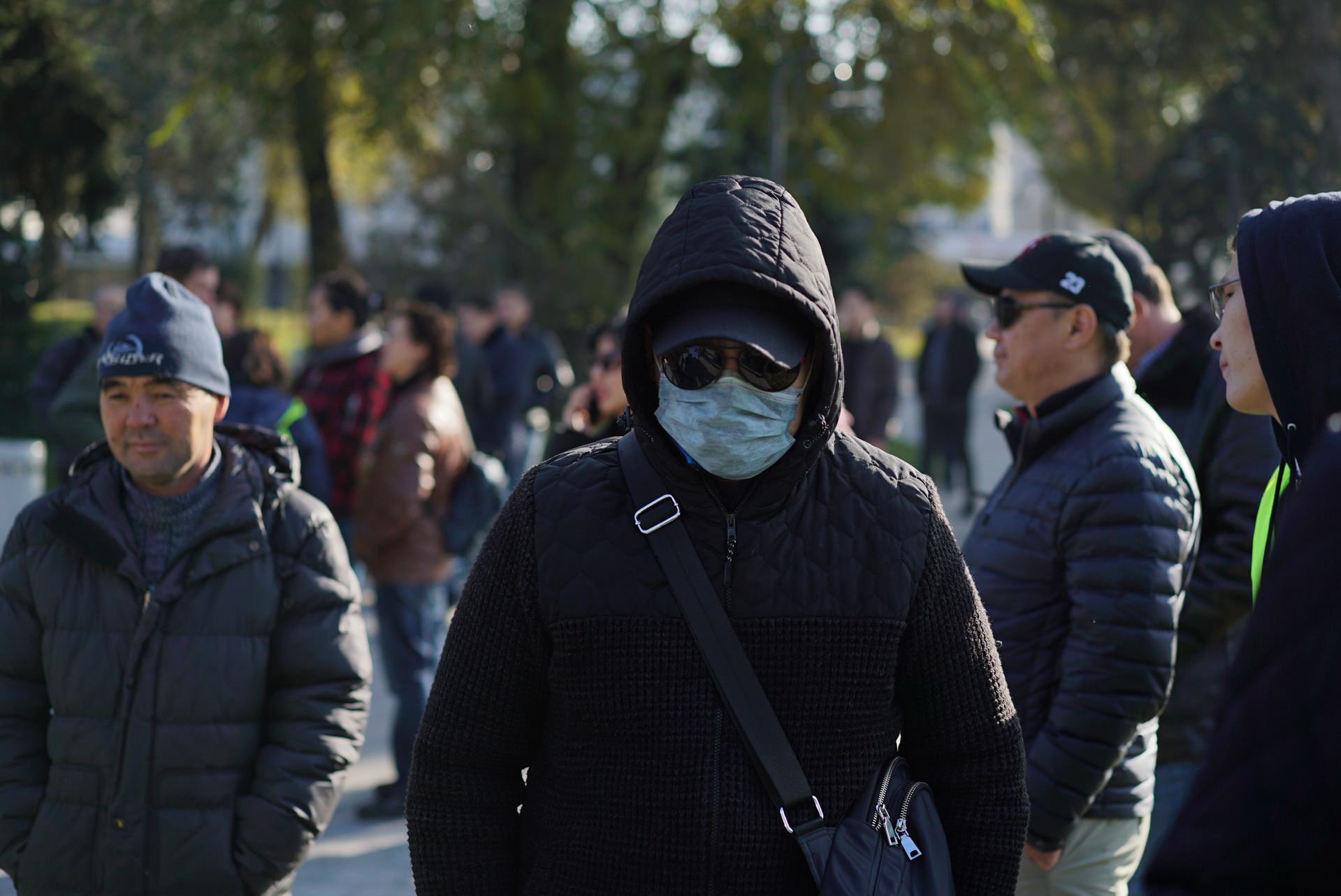
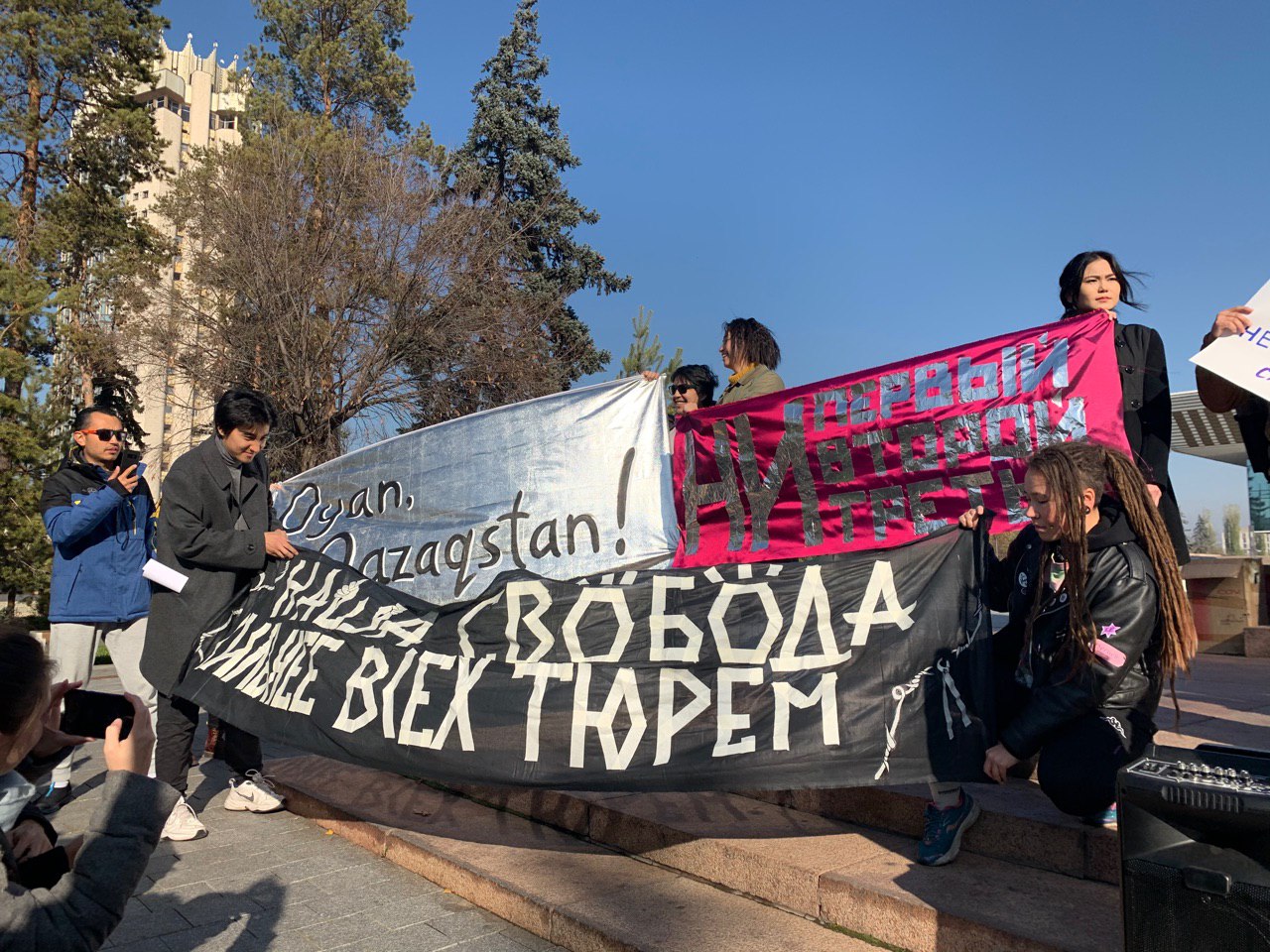
Rally participants called for the establishment of a parliamentary republic, freedom of speech, decriminalization of slander and reform of the Ministry of Internal Affairs. They protested against repression and corruption. They also verbalized their desire for the abolition of the requirement to obtain permission in order to hold peaceful assemblies and for the release of political prisoners.
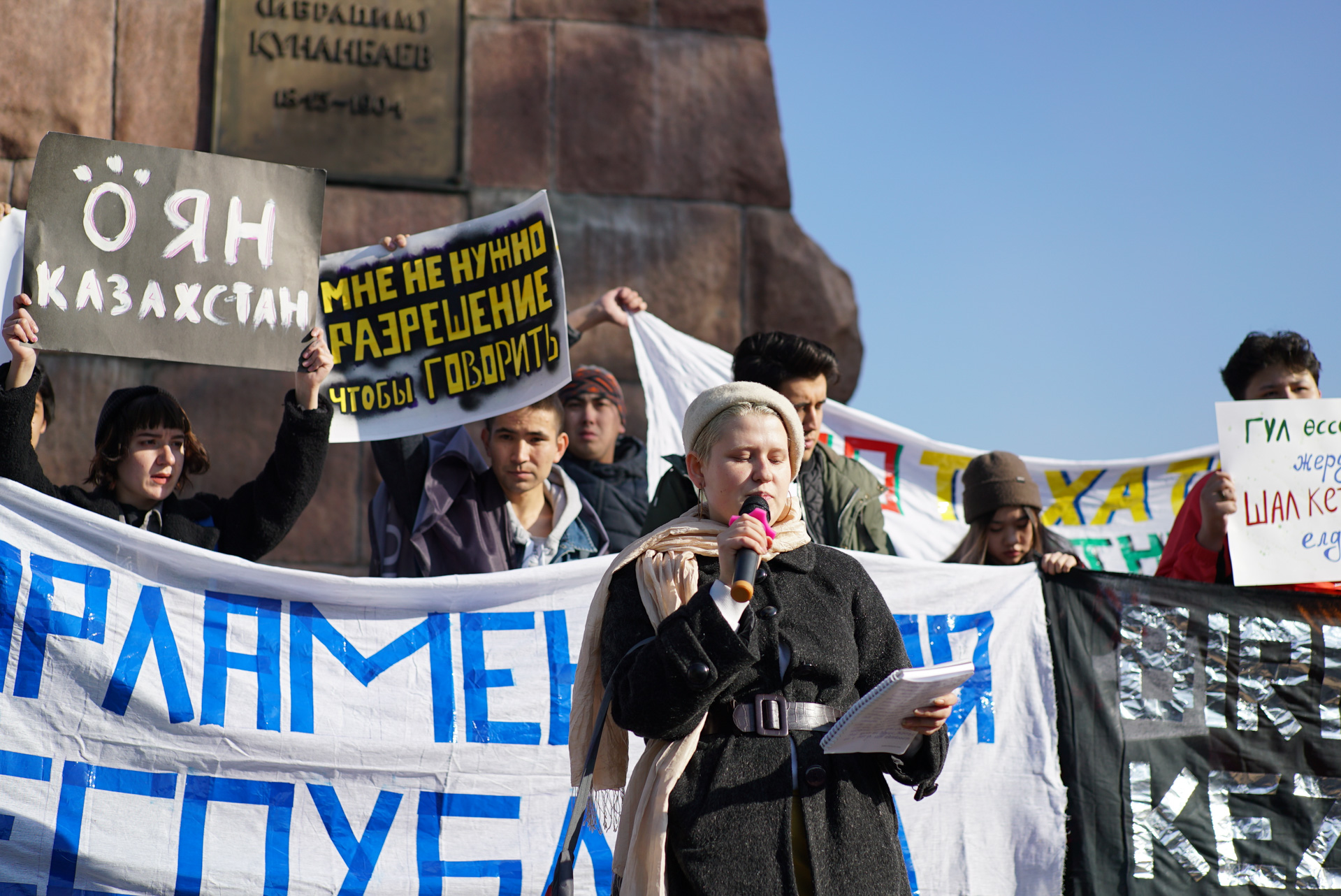
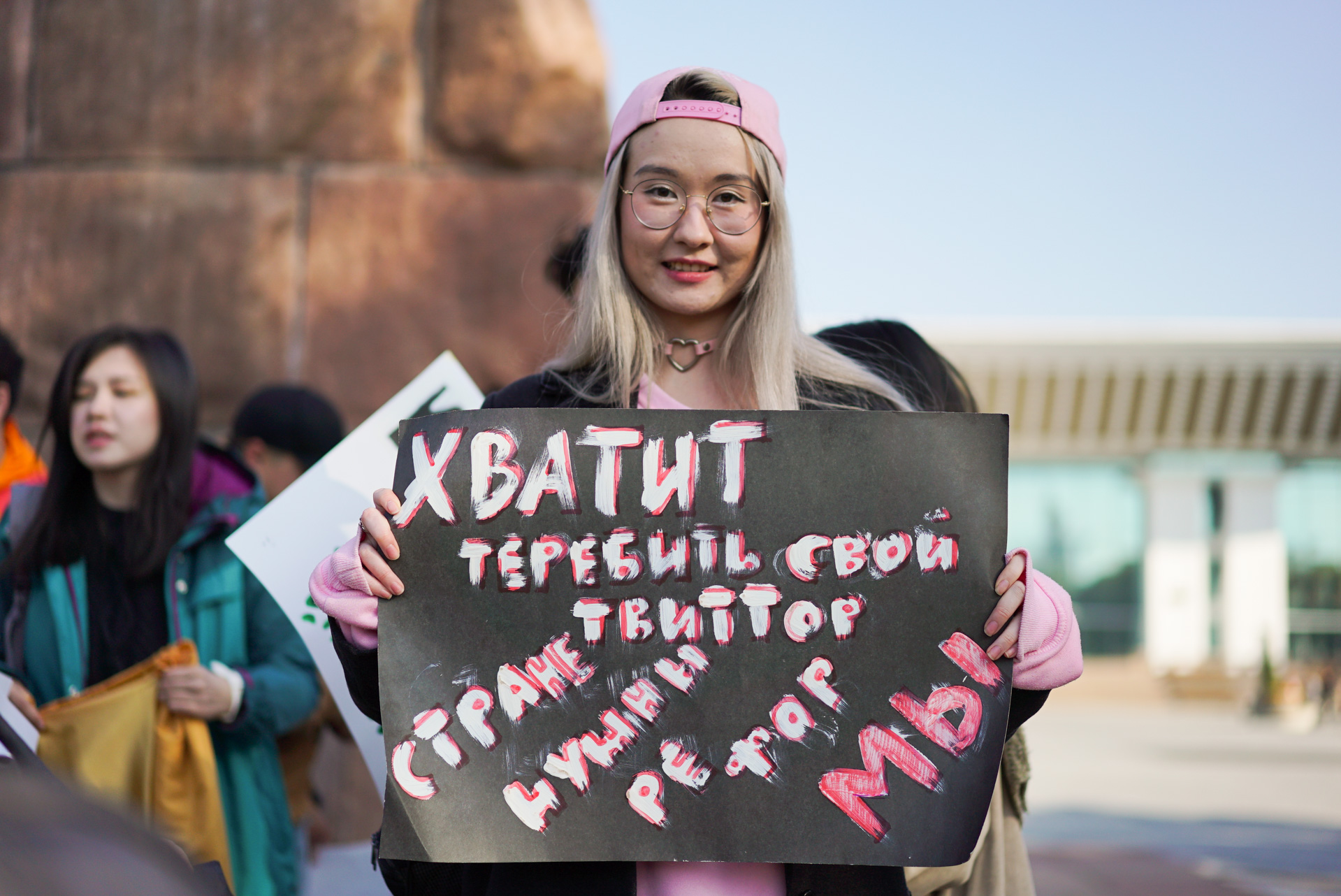
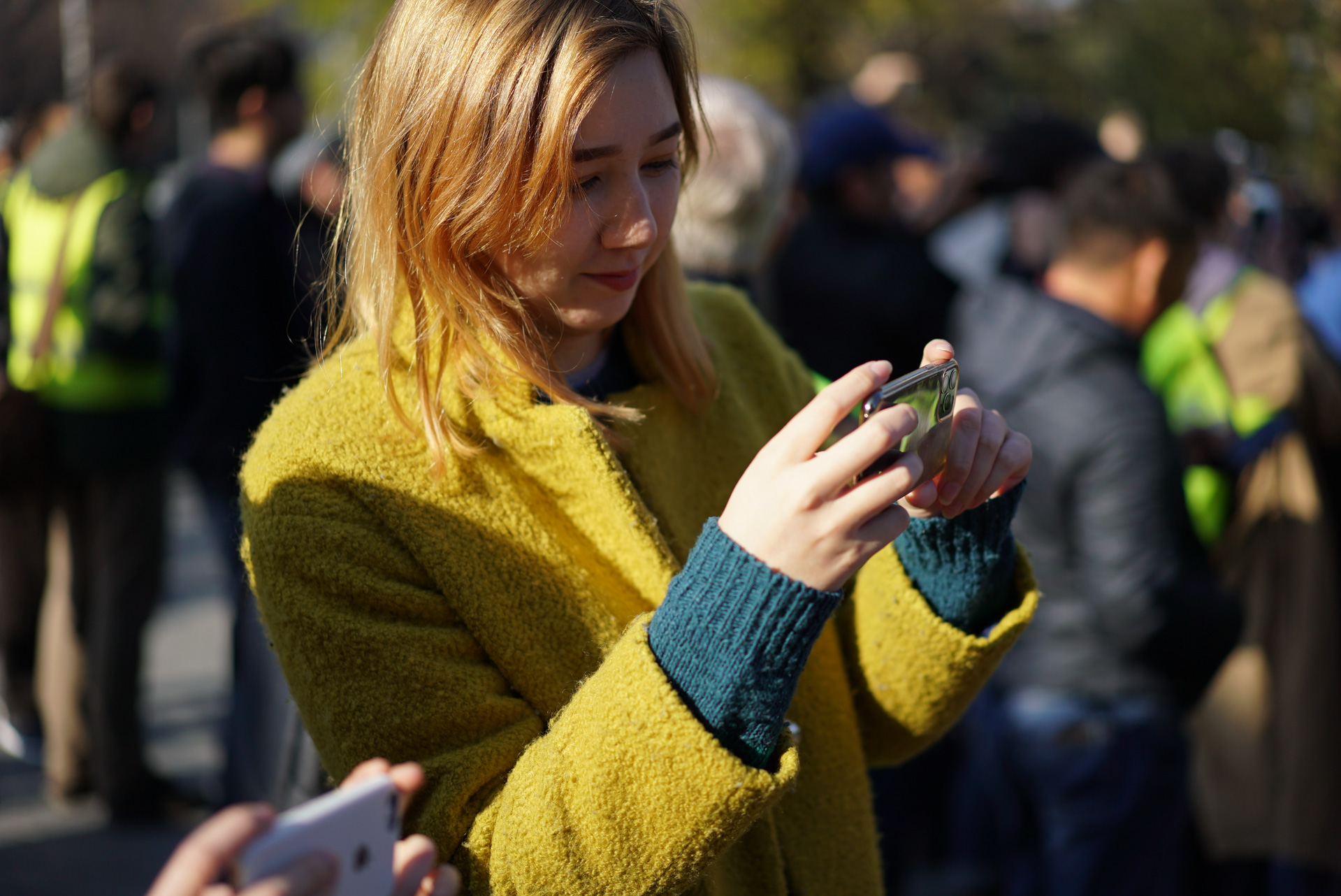
The participants chanted: “Oyan, Kazakhstan”, “Parliamentary Republic”, “Instead of authoritarianism, give us a parliamentary republic” and other slogans. Speakers also spoke about political democratization, for women's rights and environmental values, for democratic elections and against fraud.
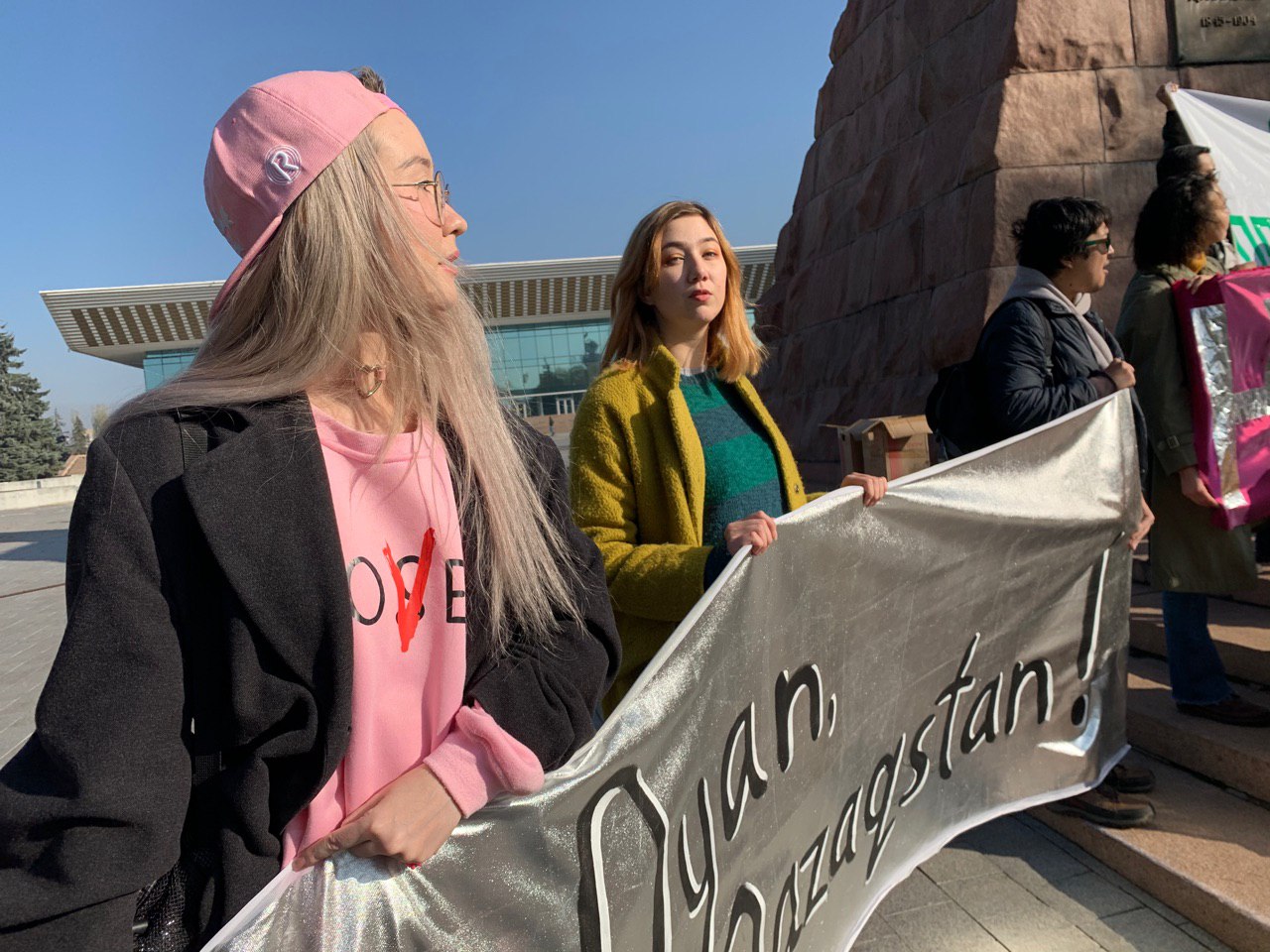
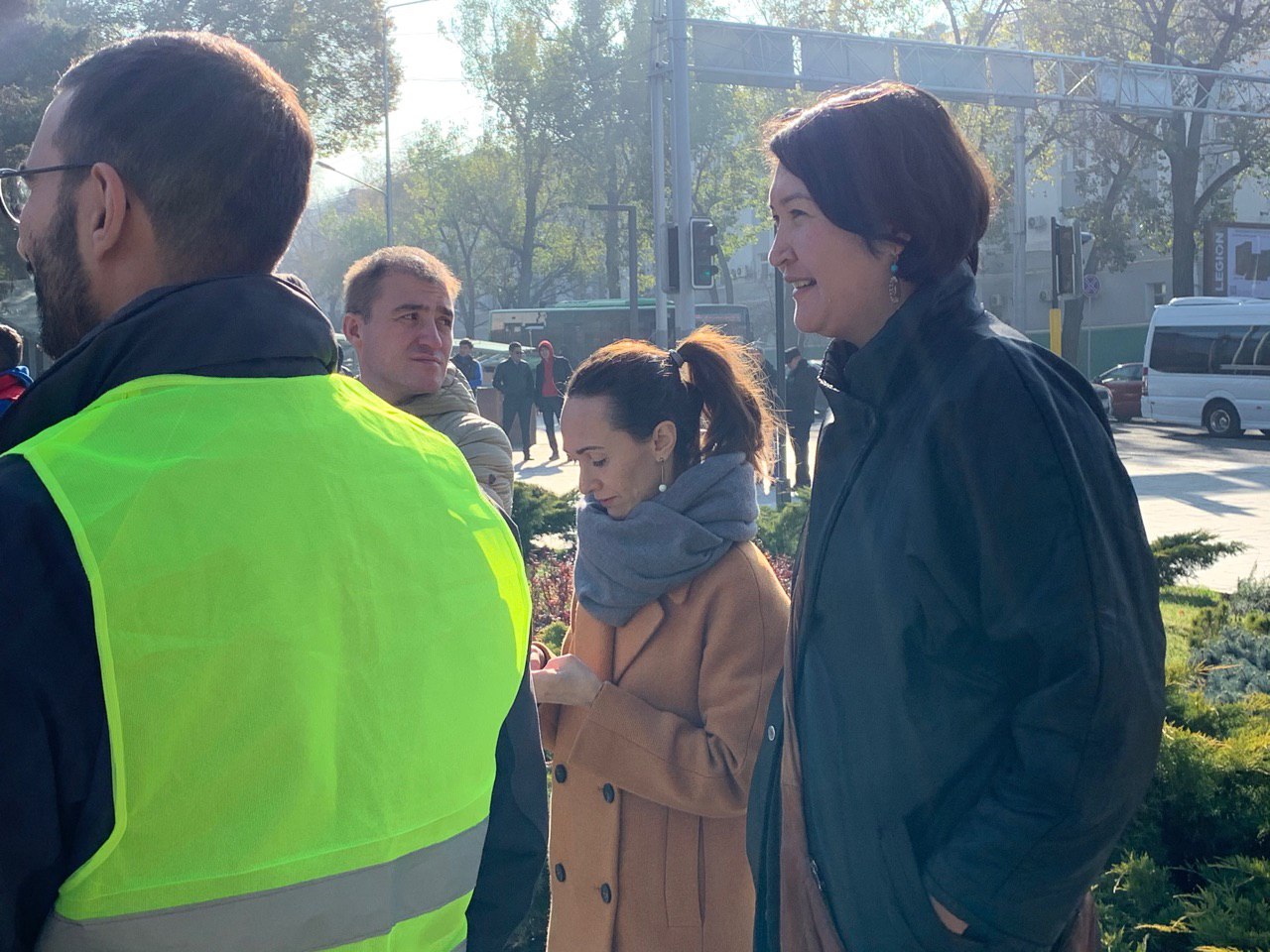
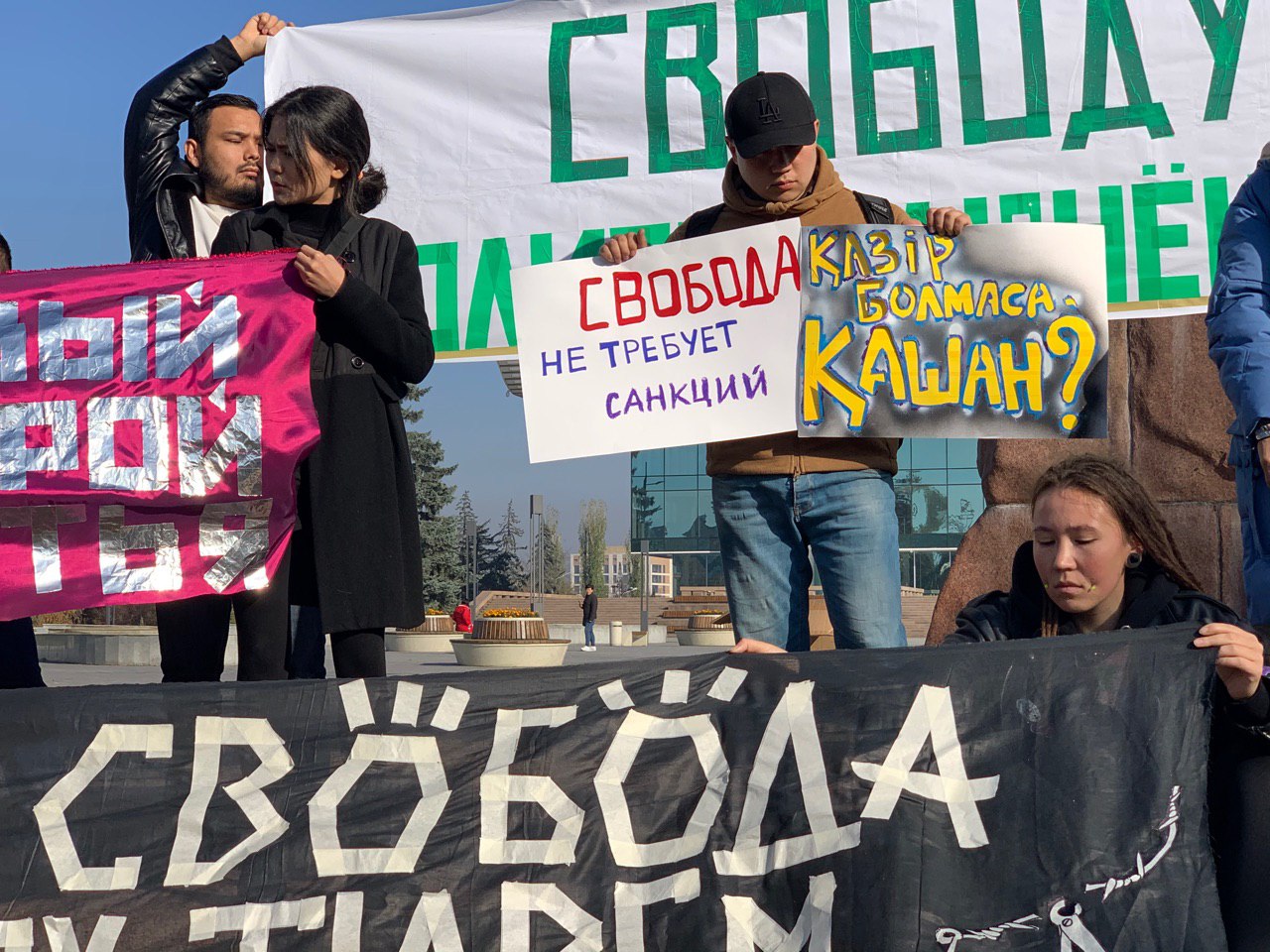
14:54: After reading the rally’s resolutions at the Abay monument, the protesters moved up along Dostyk Street towards the Republic Square, chanting “Adil saylau ushin” (Kazakh: “for fair elections”), “Free Political Prisoners”, “Bostandyq” (Kazakh: “freedom”).
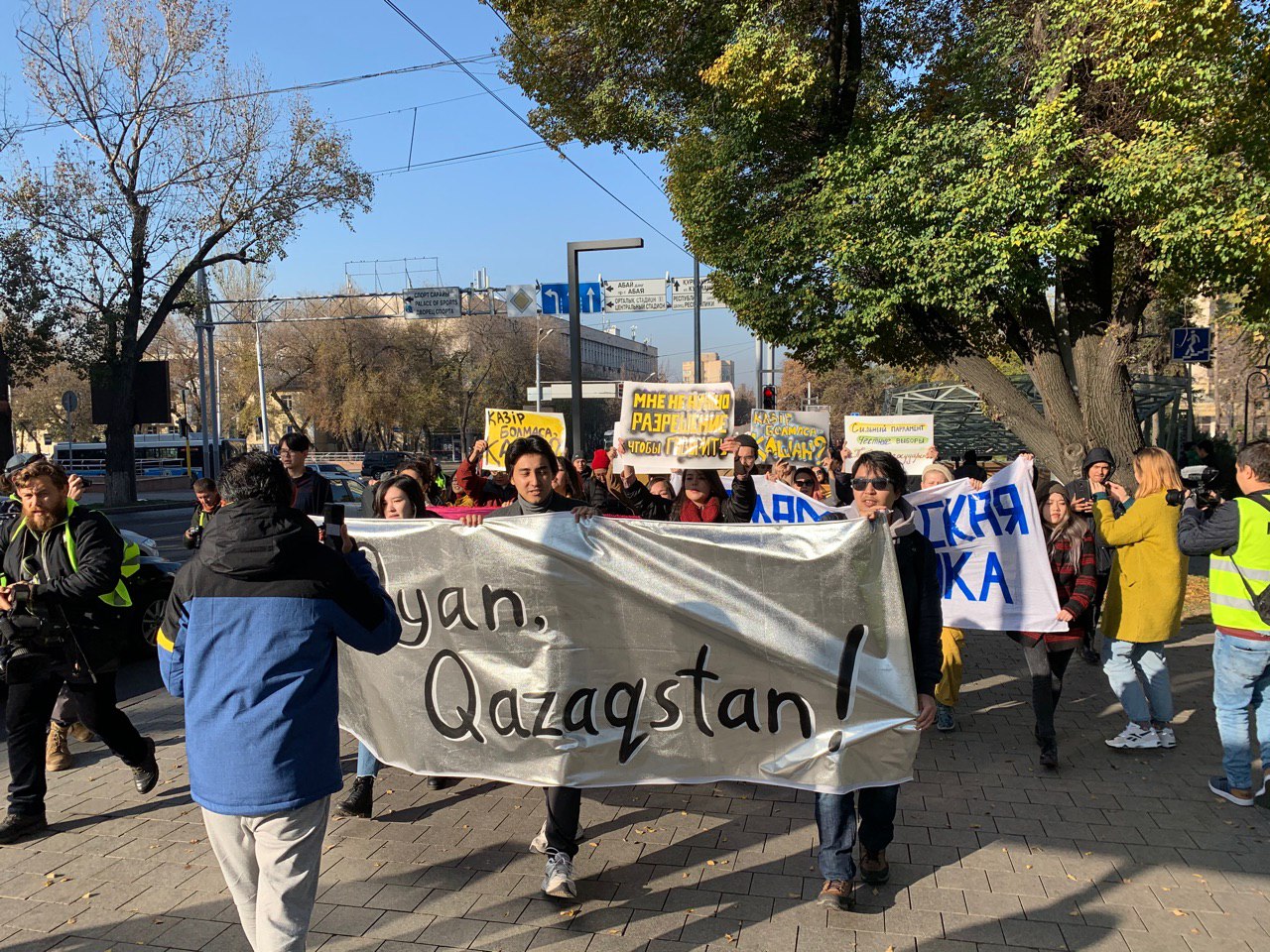
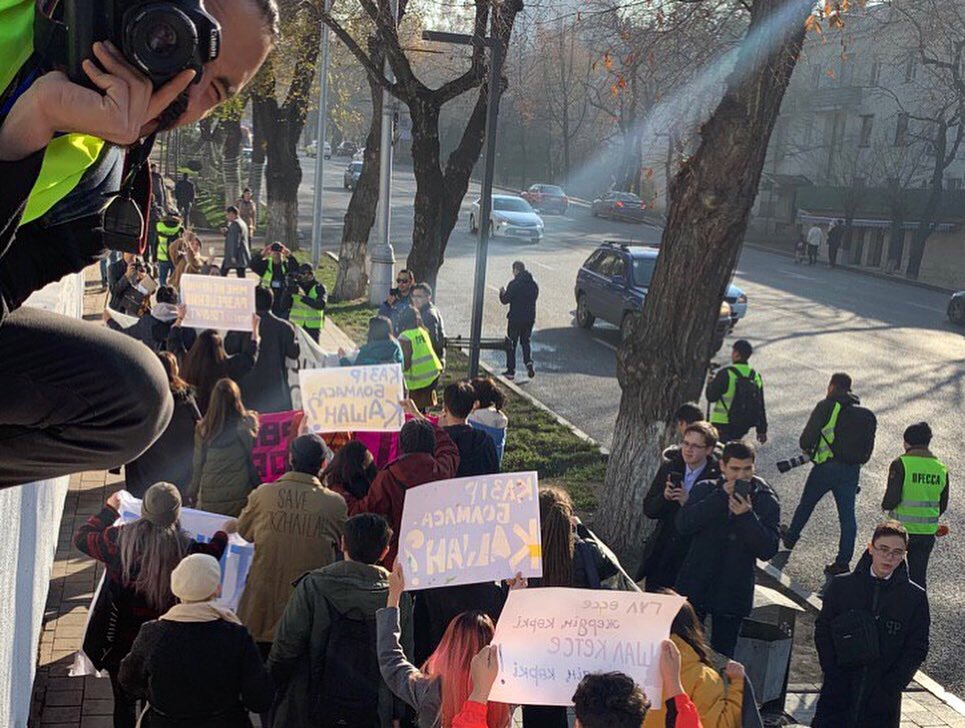
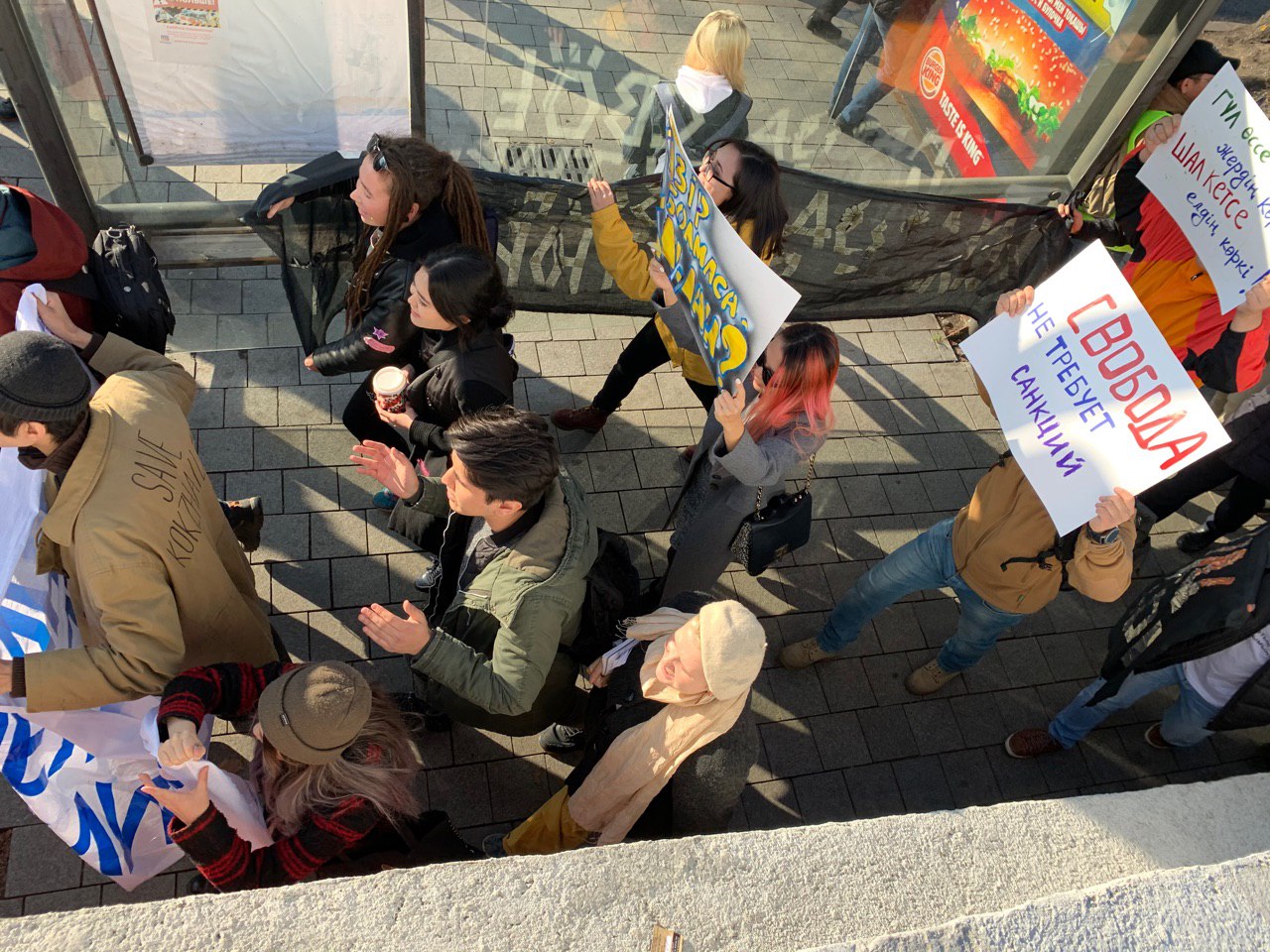
15:10: The column of protestors reached Independence Monument in Republic Square. Participants performed the anthem of Kazakhstan in chorus.
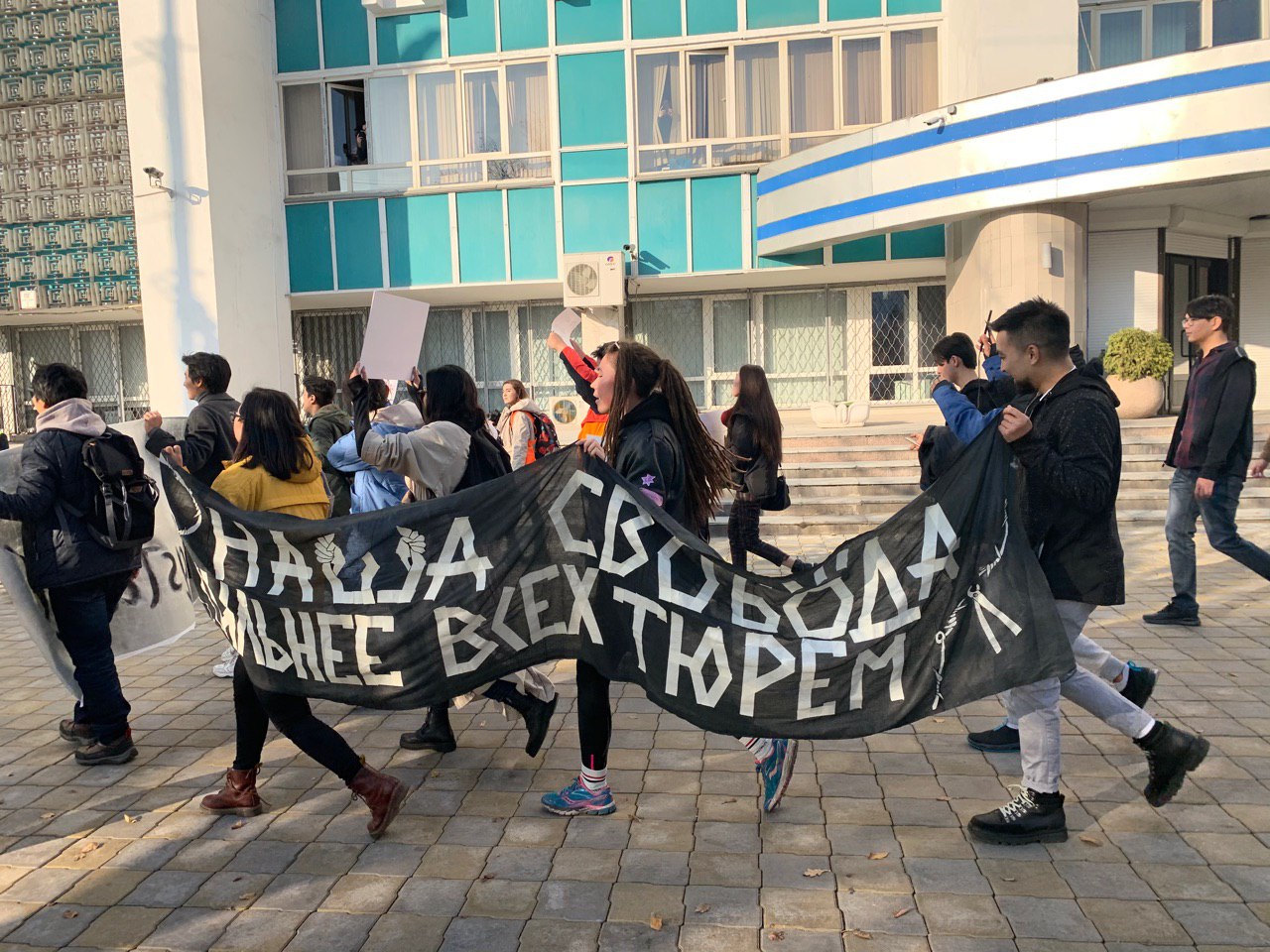
At the monument, activists gave a speech in commemoration of the victims of the events of December 1986 and the 2011 massacre in Zhanaozen. “We are not afraid. This is our country,” said art activist Dilda Ramazan.
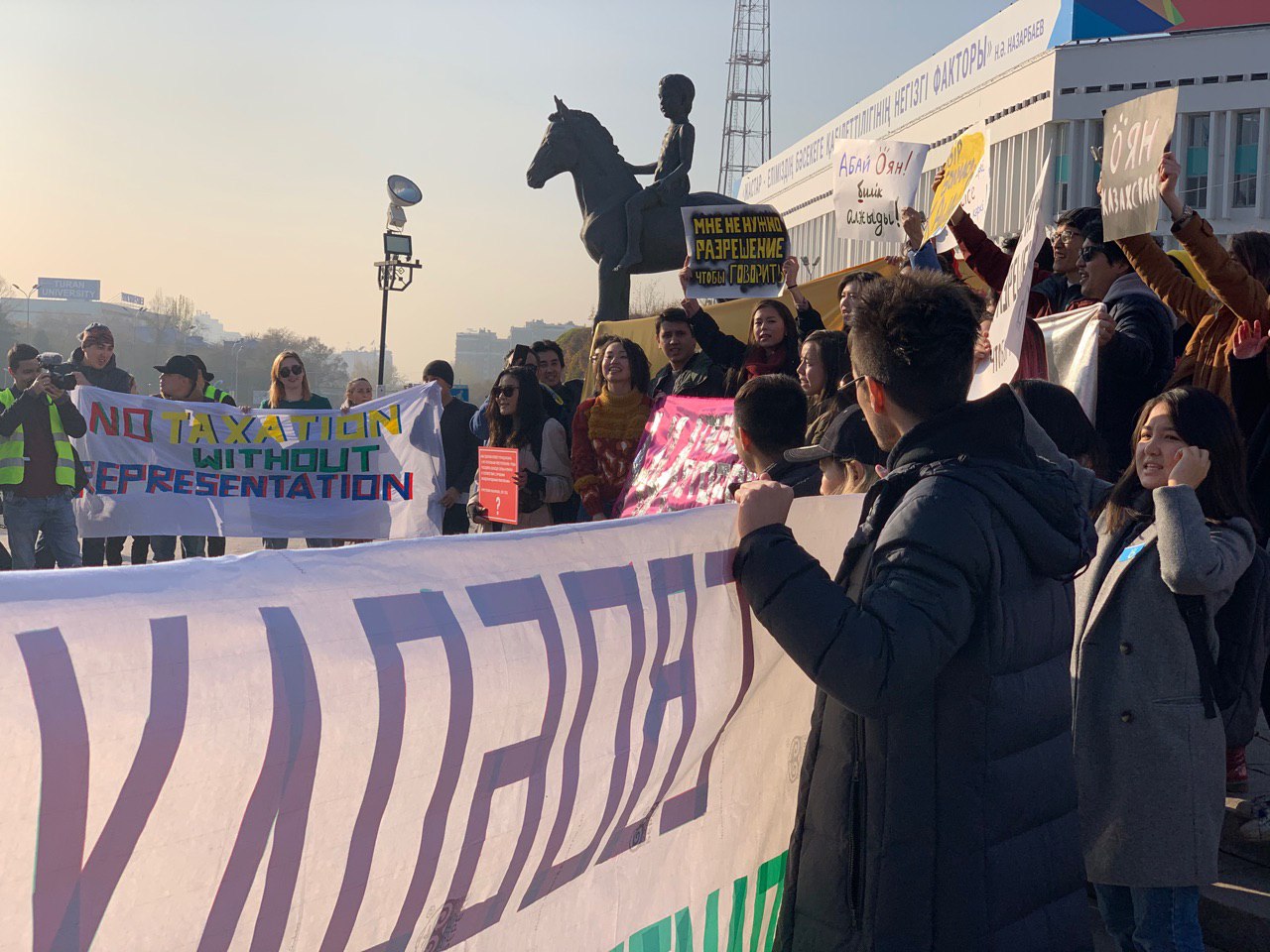
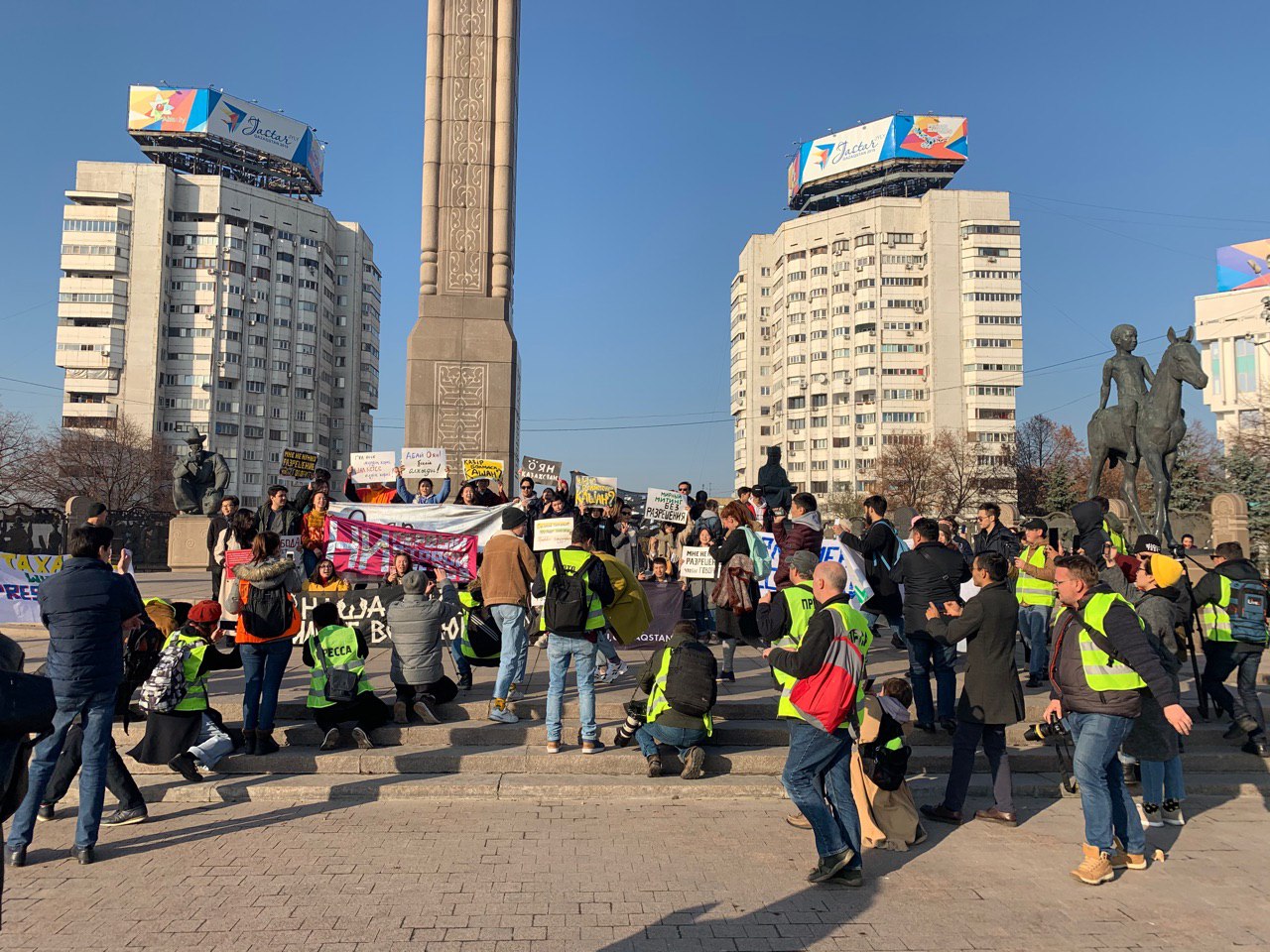
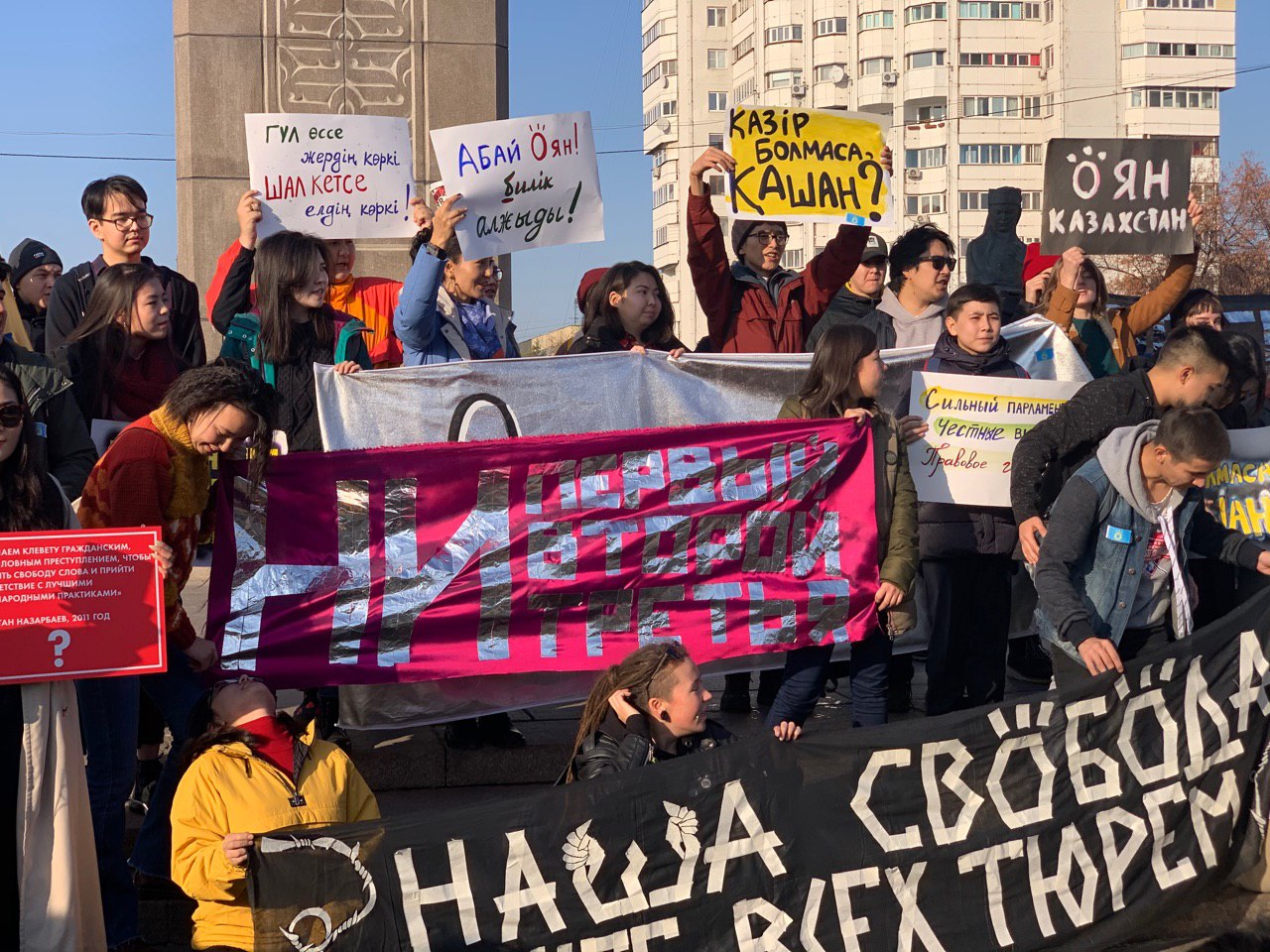
15:20: The rally ended.
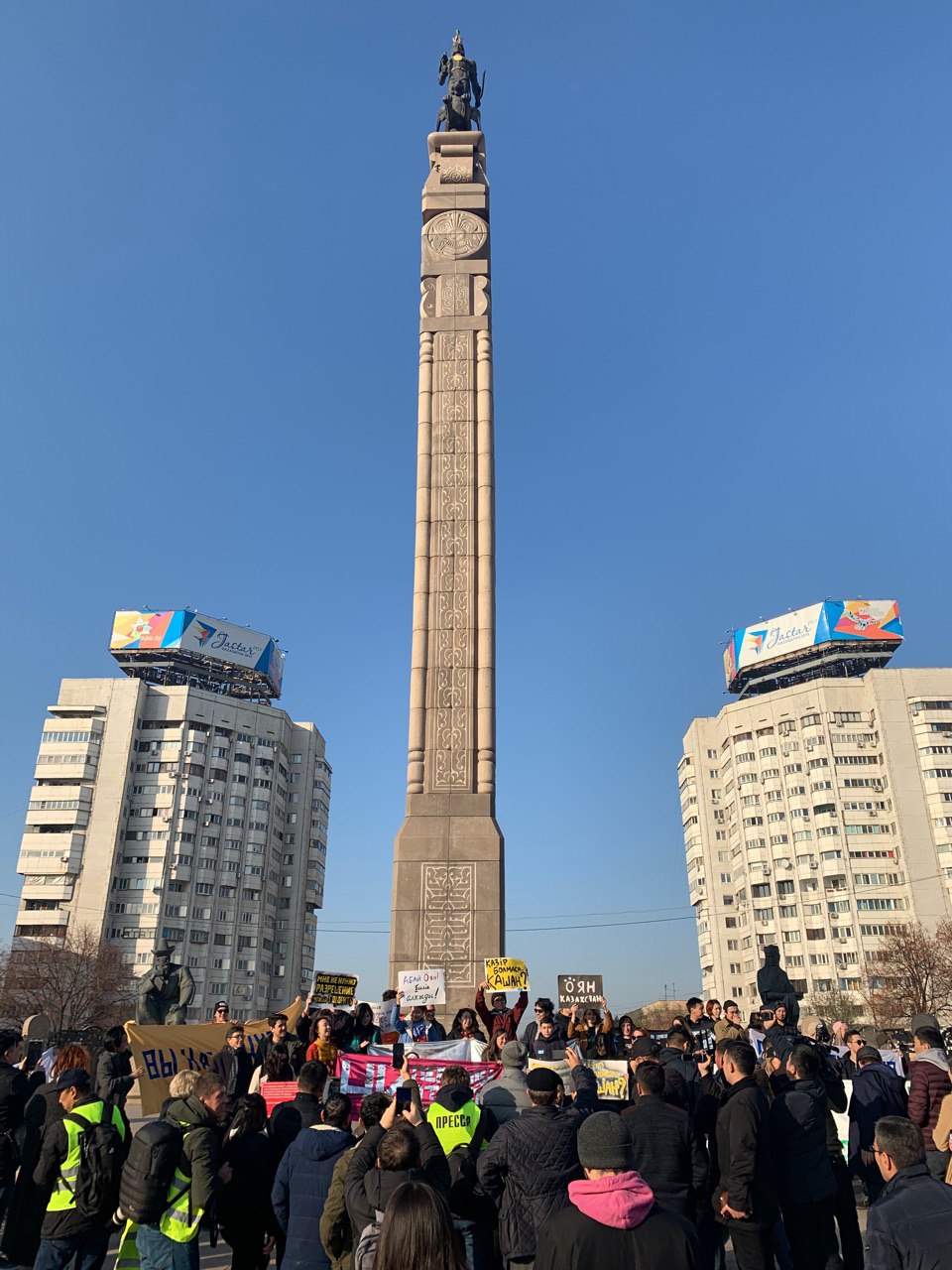
Earlier this year, the square in front of the Abay monument was already becoming a popular venue for young activists’ art protests.
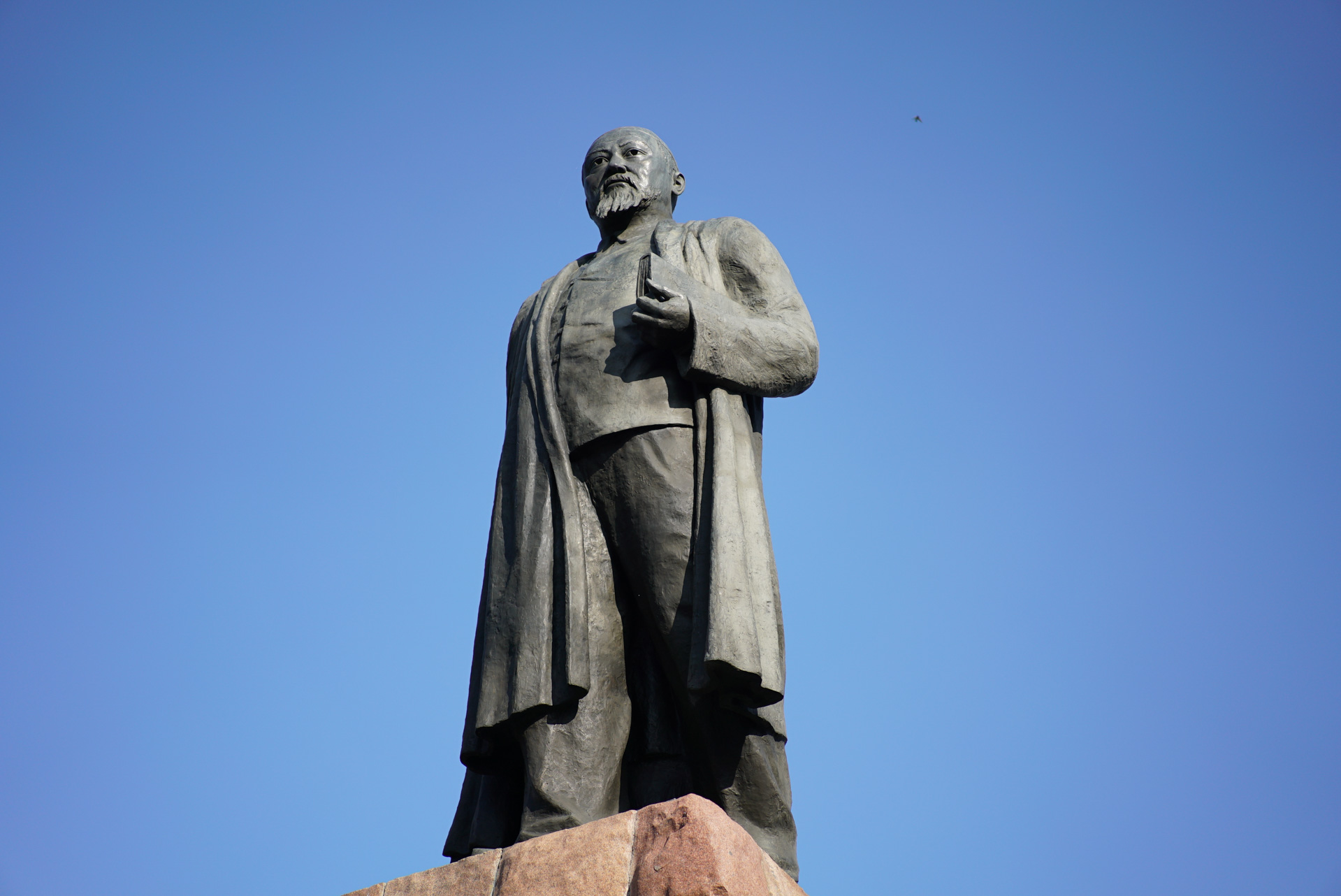
On July 14, at the Abay monument, Aidana Aidarkhan, a journalist and art activist, performed a protest in poetry. She demanded the release of her father, Aron Atabek, a poet and dissident, and other political prisoners. As part of her protest, Aidarkhan made a public statement against political repression and read her father’s poems. While reading, she was detained by the police. She was later released without charges.
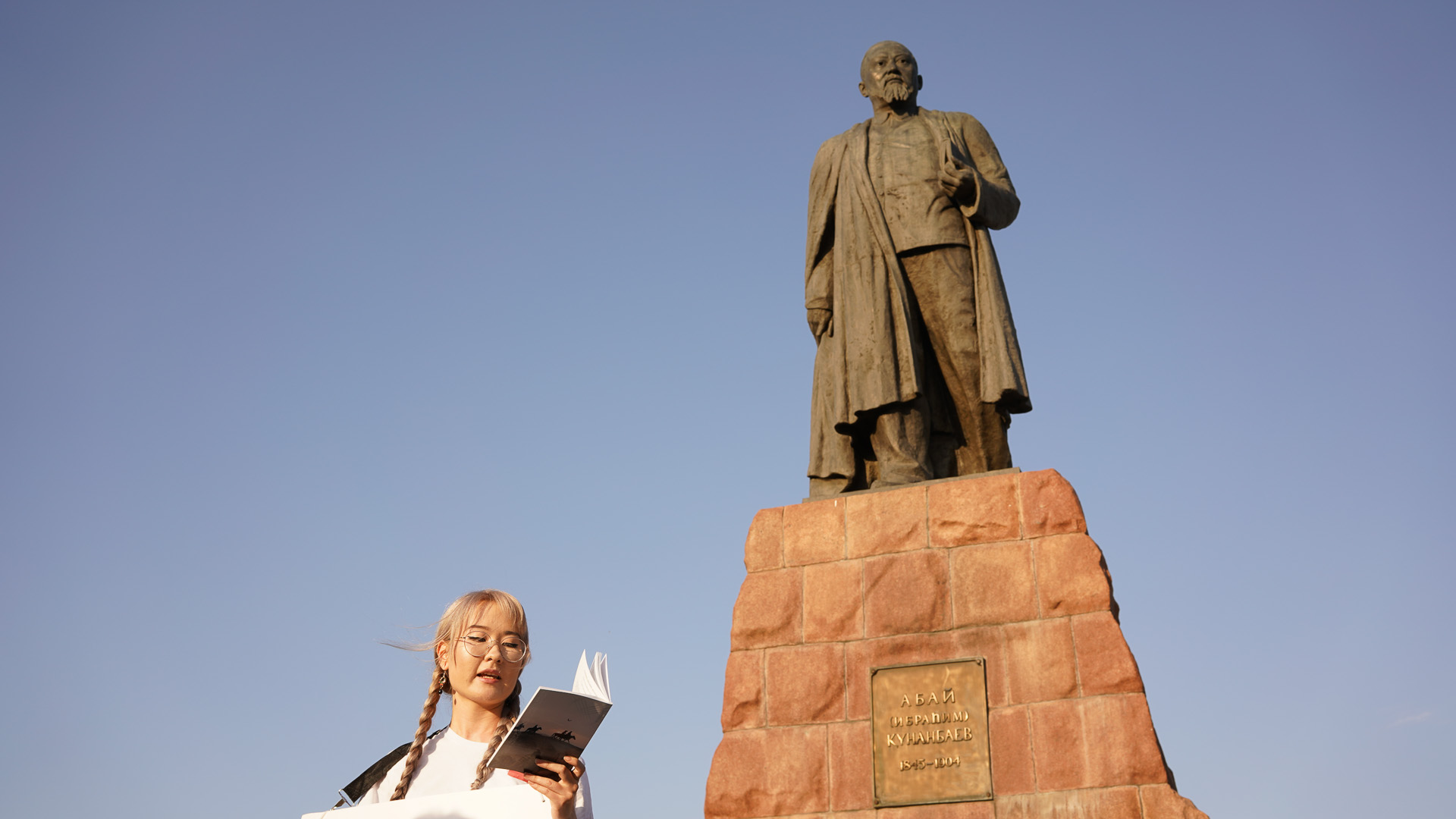
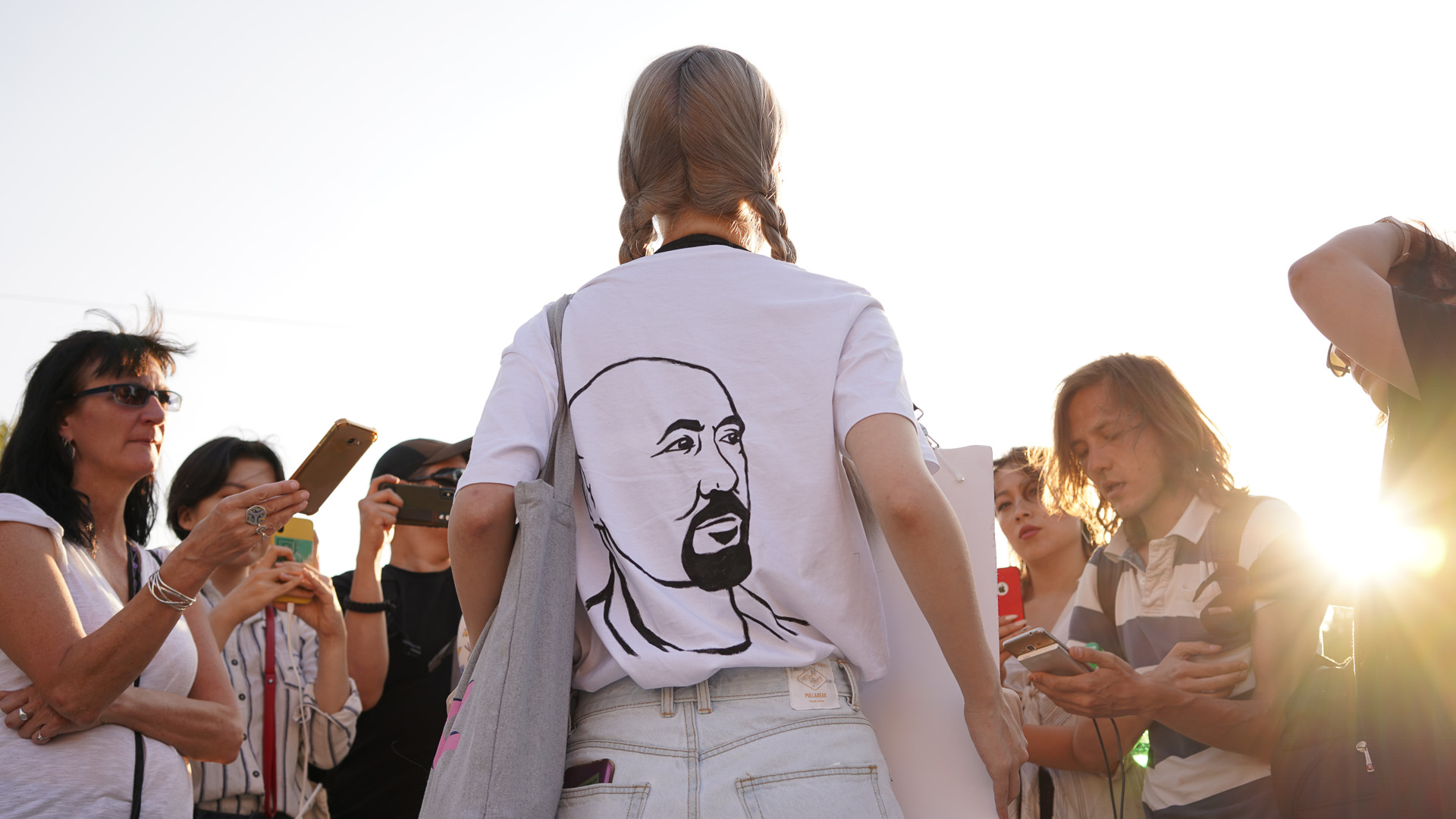
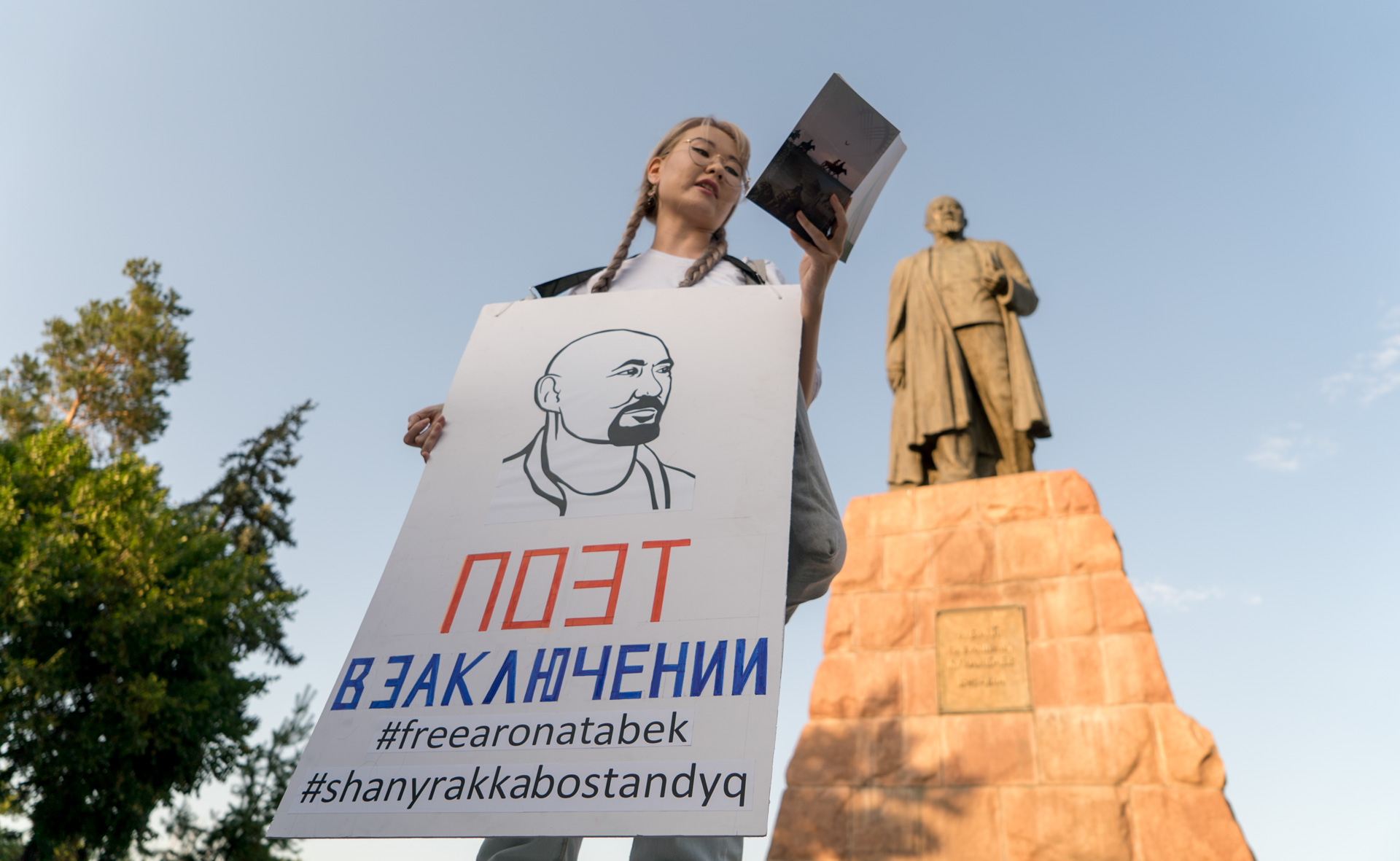
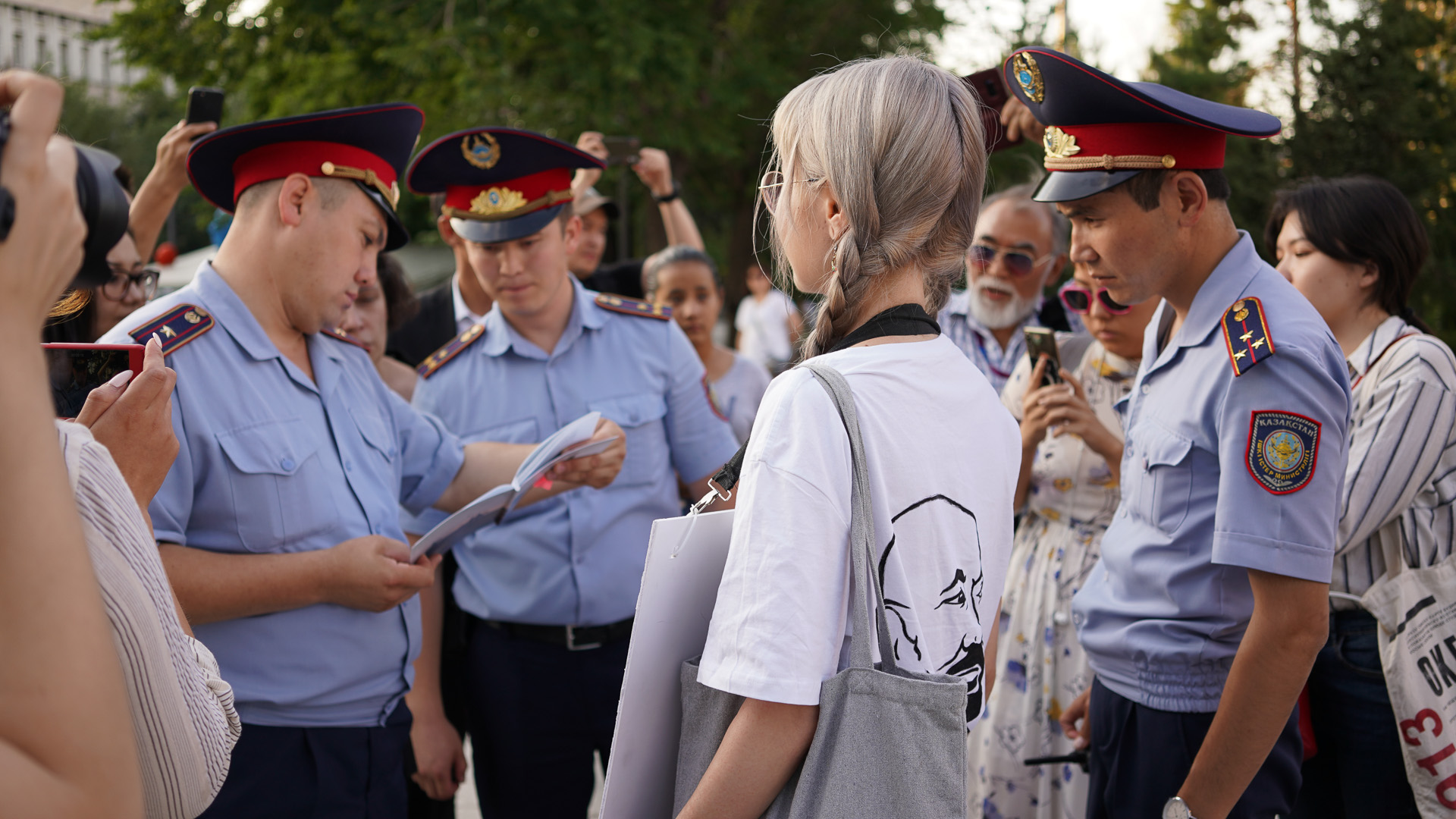
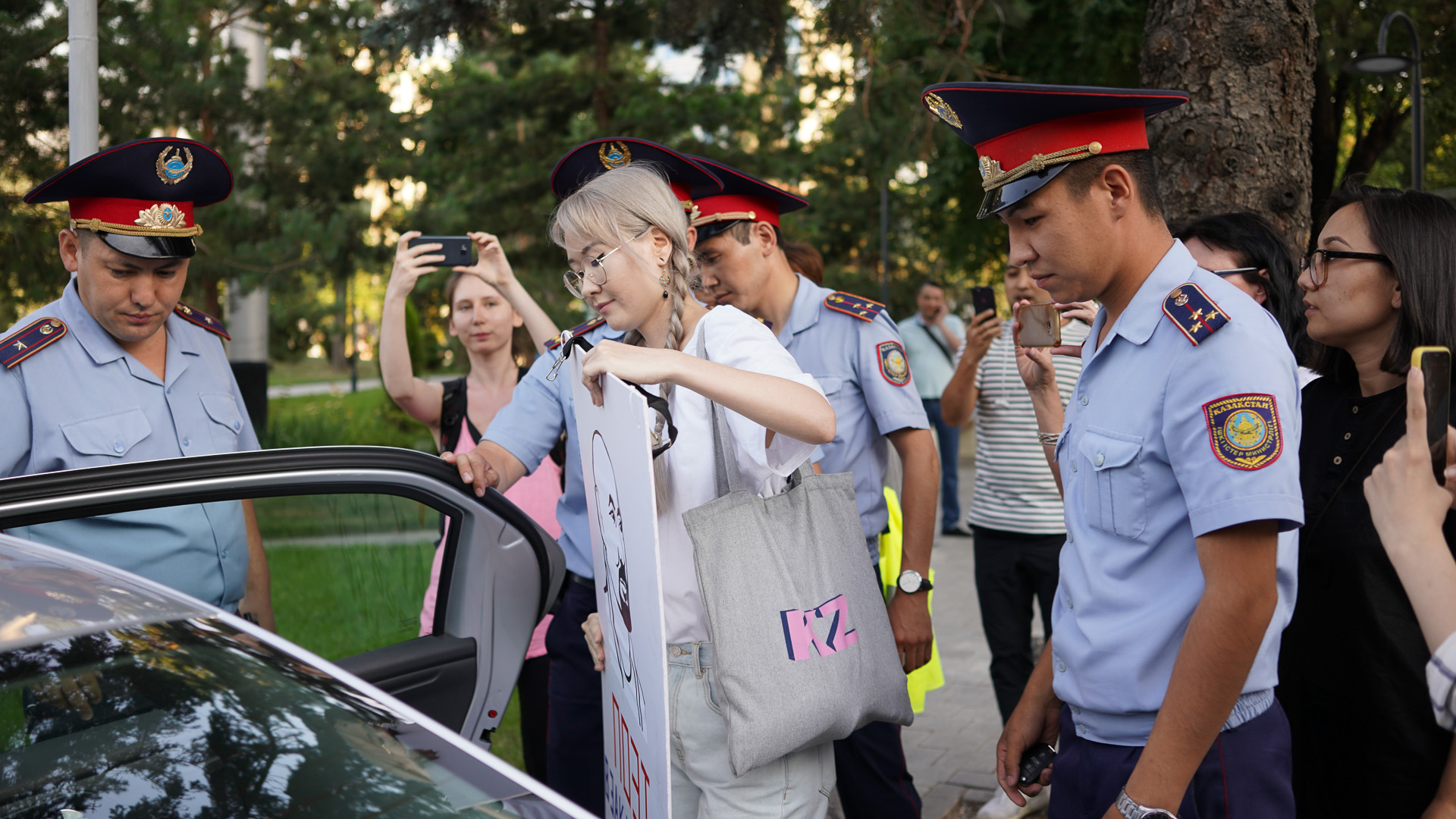
On July 18, Ramil Niyazov, a poet and civic activist, held an art protest at the Abay monument. He protested the anti-democratic permission-based format of rallies in Kazakhstan and expressed solidarity with previously arrested and detained activists. Niyazov was detained by the police and interrogated for several hours.
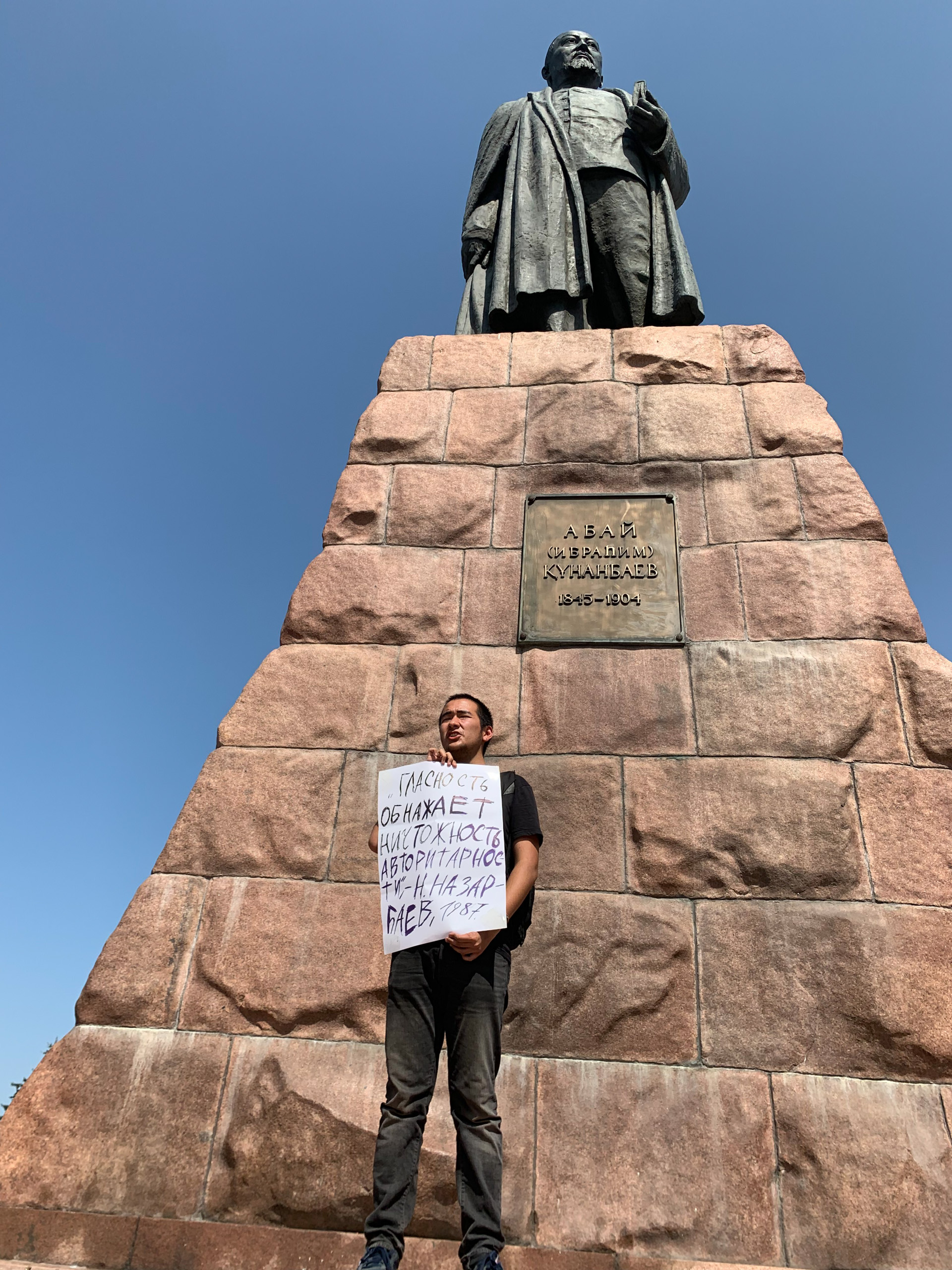
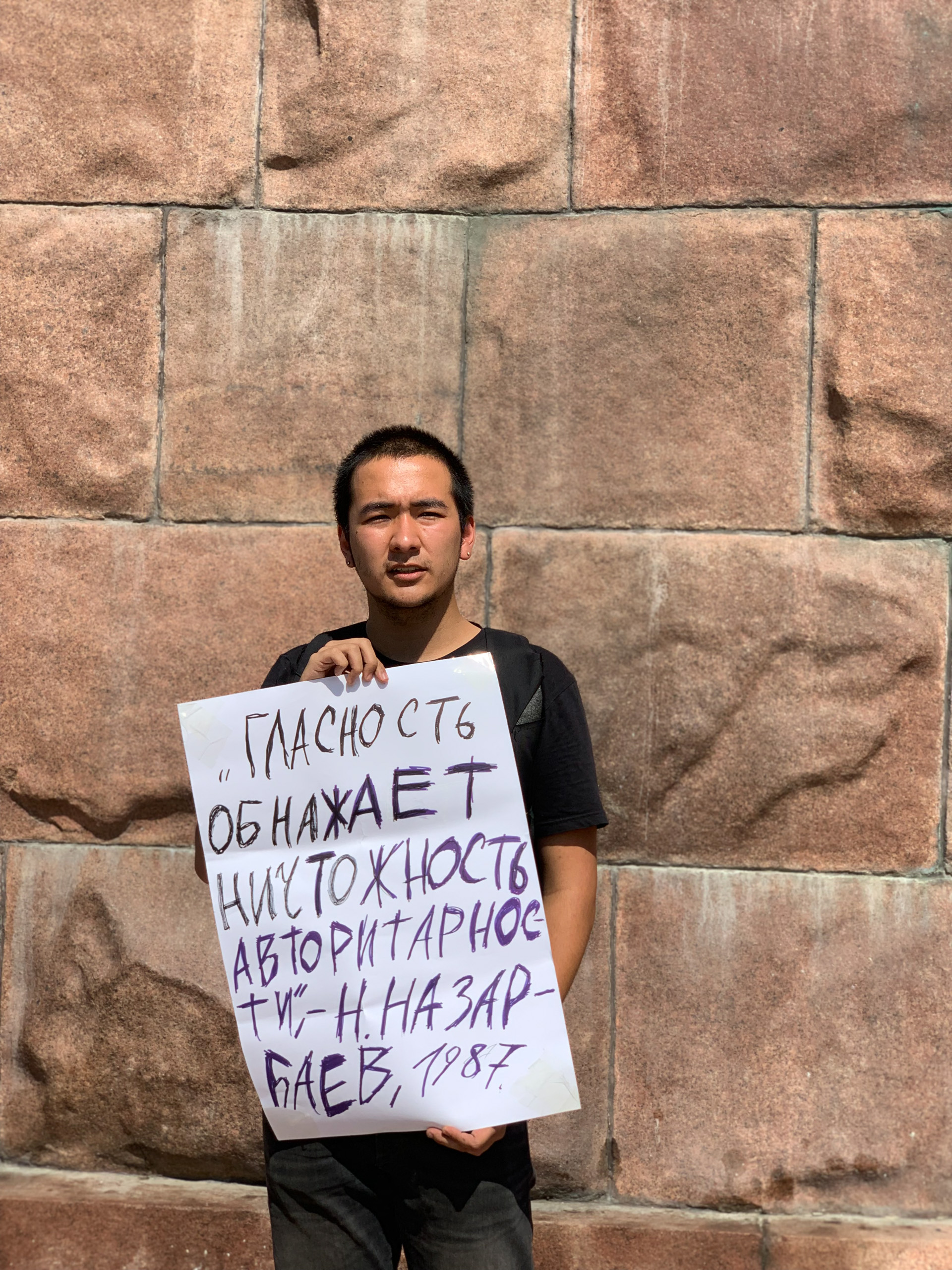
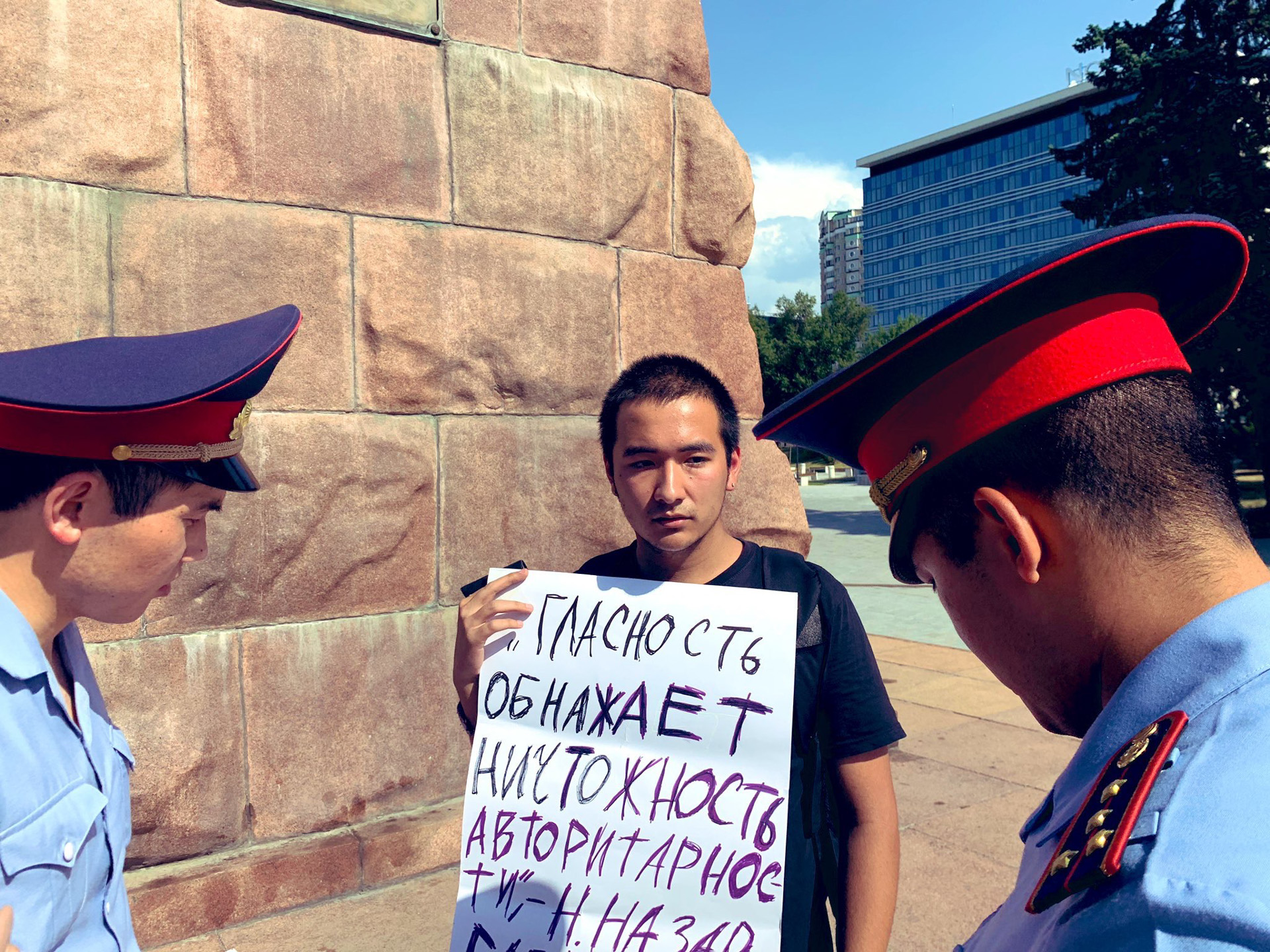
Rallies took place on November 9th in Almaty and Astana. They were announced through the social networks of civil movements “Oyan, Qazaqstan” and “Respublika”.
The accompanying text stated that: “the purpose of these rallies is to declare the need for political reform. After 28 years of the monopoly of power by one president and the Nur Otan party, it is obvious that the presidential model of governing our country and economy has failed. Society is divided into a poor majority and an ultra-rich minority. Economic opportunities are accessible only to people in power, and total corruption corrodes all spheres of life. Society has no confidence in the future. Our well-being, security and the opportunity to live better today are directly dependent on political reforms in the country. Therefore, we dependably advocate for restrictions on presidential powers and the transition to a parliamentary republic. This is the best political framework for positive changes in the future, such as political competition, fair trials, an accountable government and economic opportunities for all ... We remind the authorities of their obligation under the Constitution and the International Covenant on Civil and Political Rights to ensure the safety of peaceful protestors from violence and provocation."
Context and Background
In March 2019, the 17-year-old artist Medina Bazargalieva held a solo art event, during which she walked along Panfilov Street repeating the phrase, “I have a choice!”.
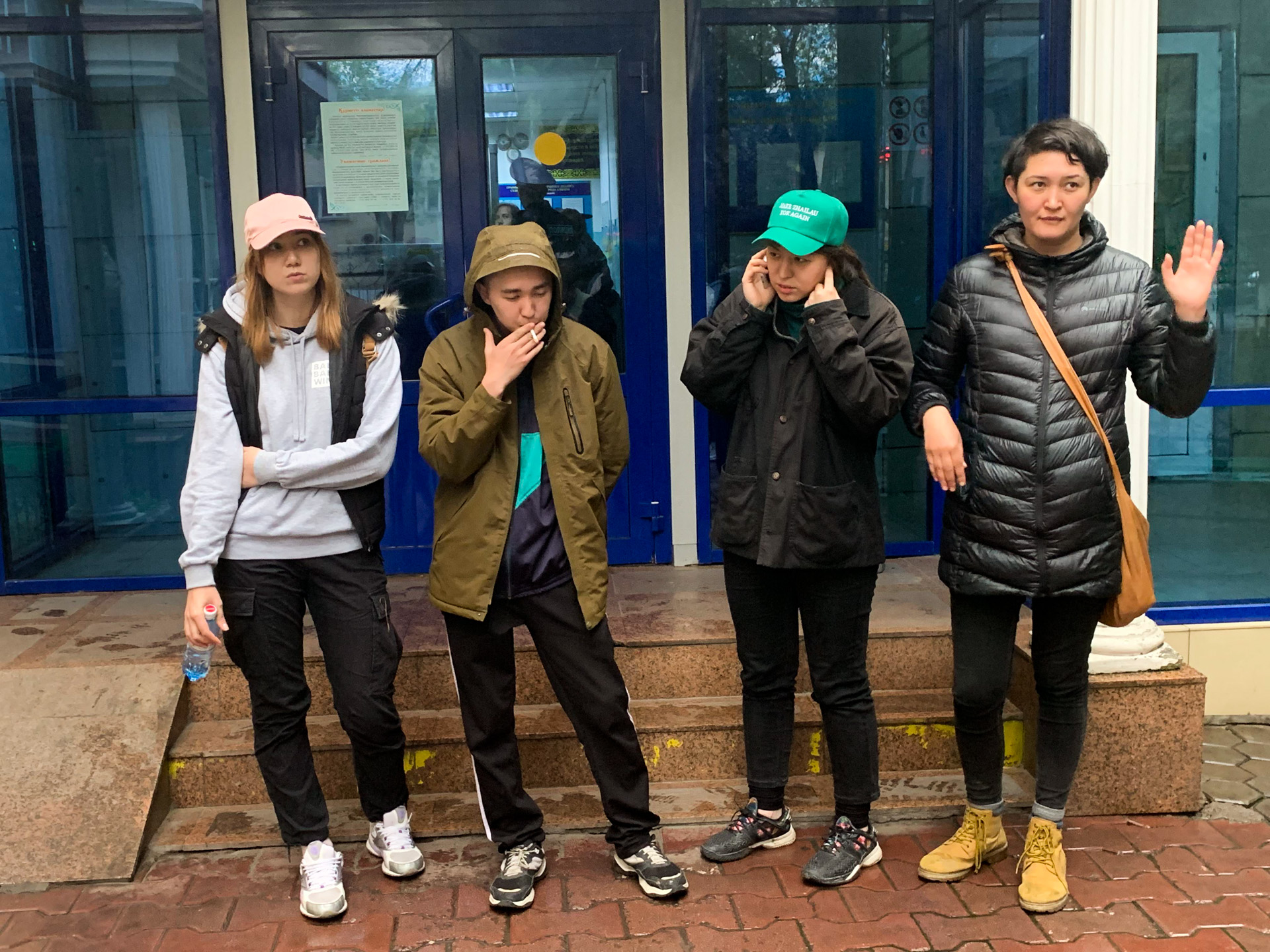
These words have become one of the main slogans of democratic protest in Kazakhstan. Art and environmental activists Asya Tulesova and Beibarys Tolymbekov printed these words on their banner as part of their famous art flash mob “You Can’t Run From the Truth”. Tulesova and Tolymbekov were detained by the police and arrested for their action. A number of Kazakhstani and international human rights organizations recognized them as prisoners of conscience. Hundreds of civilians, art activists and students in all major cities of Kazakhstan (Almaty, Astana, Shymkent, Uralsk, and others) and other cities of the world (London, New York, Rome, Berlin, and others) protested in solidarity with the detainees. By the end of spring 2019, civil and art protests took shape in “Oyan Qazaqstan”, “Republic” and other activist and art groups that began to advocate for freedom of speech, for democratic reforms and against repression. They began to hold protests and actions of solidarity with detained activists.
In the spring and summer, over 4000 people were arrested and detained in Kazakhstan. According to Kazakhstani and international organizations and the UN, these arrests and detentions violated basic democratic principles, the Constitution of the Republic of Kazakhstan and international norms on freedom of peaceful assembly. 2019 in Kazakhstan was characterized by government repression against the media and freedom of speech.
Police and special units were used against journalists and activists, as well as thugs for hire. In addition, all major social networks and instant messengers in Kazakhstan were subject to widespread blocks by the government.
All Photos by ÅDÅMDÅR / CA
Use is only possible with the written consent of ÅDÅMDÅR / CA
